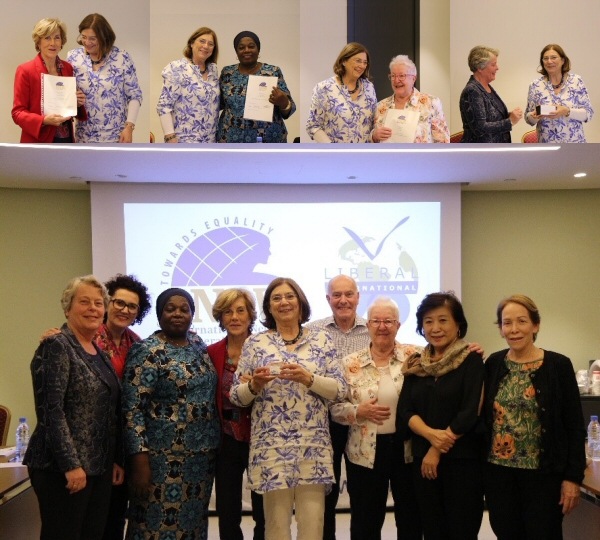Events
Reflections on Women, Water, Culture and Education – Past, Present and Future

Wednesday 22 March 1:30 PM to 2:45 PM | Columbia University, New York, NY 10027
(the campus is easy to access by public transit using the IRT #1 subway to 116 Street)
The location of the program is the Center for Buildings, Infrastructure and Public Space at the School of Engineering, 500 West 120th Street, New York, NY 10027 (room 706).
Organizer:
INLW
Partners:
UNESCO Chair Water Ports and Historic Cities • IHE Delft Institute for Water Education • Dutch Water Authority Rijnland • Drinkable Rivers • United Nations Economic Commission for Europe UNECE • Womenvai • World Federation of Engineers Organisation WFEO • Erasmus University Rotterdam.
Program:
This Side Event will elaborate on the following issues. On the one hand Women Leaders are needed at all levels of society, in water utilities, government water agencies, and international and regional water institutions to reduce the democratic gender deficit in water leadership. On the other hand safe water and sanitation is so important for getting girls and boys to school and educated them to become water leaders.

SAVE THE DATE
Wednesday 22 March 1:30 PM – 2:45 PM
Columbia University, New York City
the campus is easy to access by public transit using the IRT #1 subway to 116 Street.
Theme:
“Reflections on Women, Water, Culture and Education Past, Present and Future”
Program:
This Side Event will elaborate on the following issues. On the one hand Women Leaders are needed at all levels of society, in water utilities, government water agencies, and international and regional water institutions to reduce the democratic gender deficit in water leadership. On the other hand safe water and sanitation is so important for getting girls to school and educated for them to become leaders.
Organizer:
INLW
Partners:
UNESCO Chair Water Ports and Historic Cities; • IHE Delft Institute for Water Education; Dutch Water Authority Rijnland; Drinkable Rivers • United Nations Economic Commission for Europe UNECE; • Womenvai; • World Federation of Engineers Organisation WFEO.
For more information about the side event on Wednesday 22nd of March 1:30 PM – 2:45 PM, at Columbia University, please contact Ruth Richardson, Secretary-General INLW at this email address: ruthy27@hotmail.com
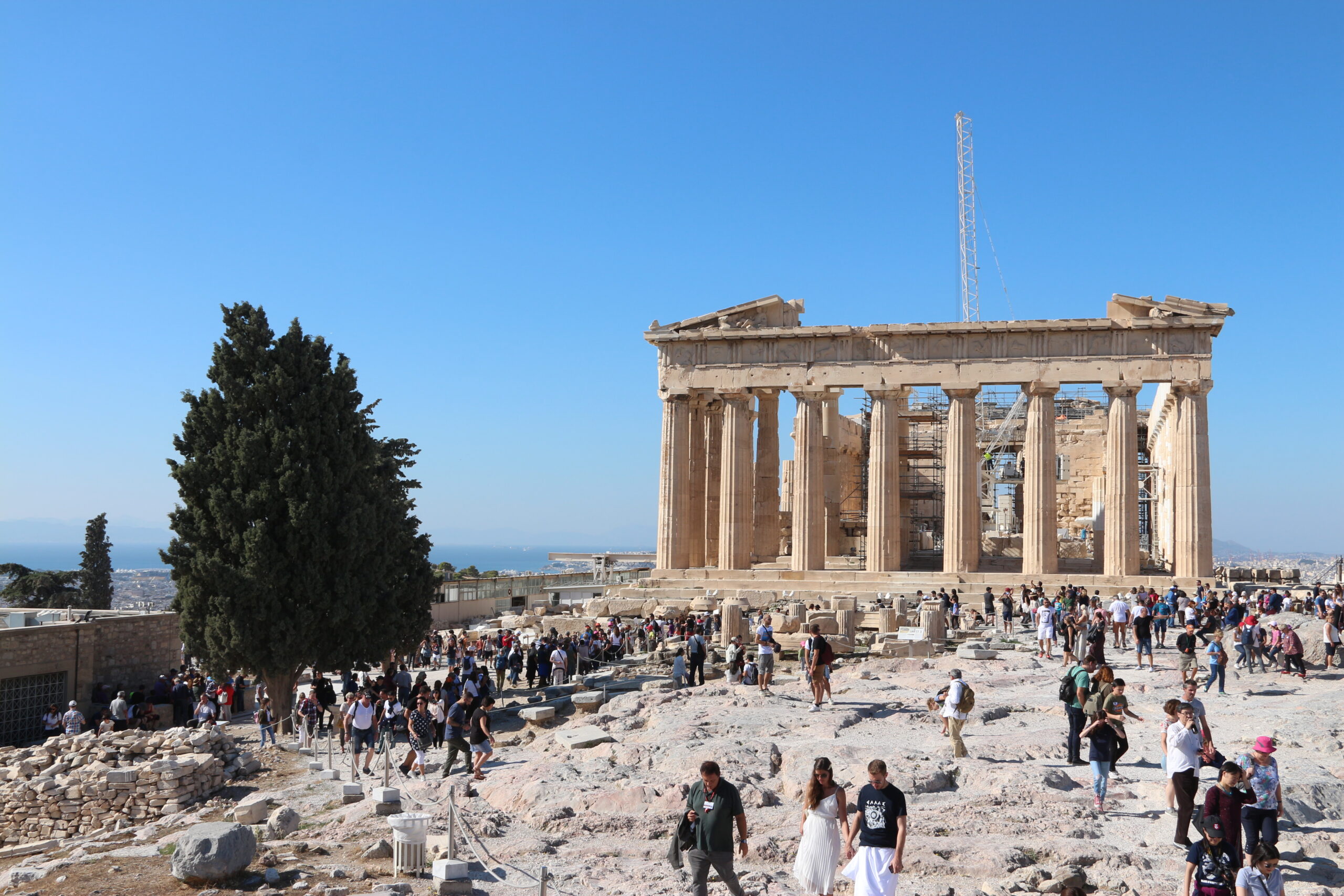
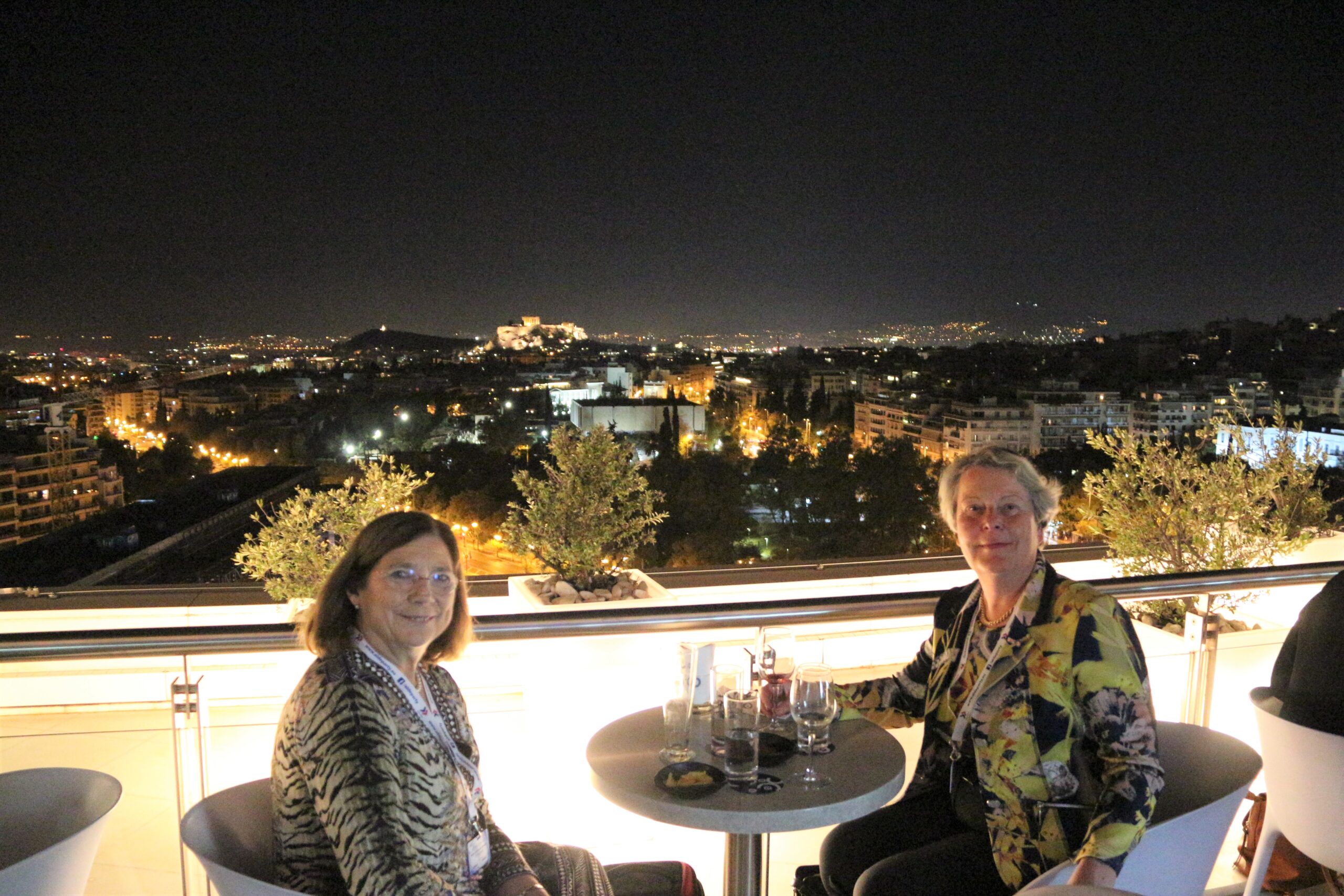
This year the ALDE party met at Athens for its congress. The European Liberal Democratic political family was founded in 1976 ahead of the first European elections and was established as the first true transnational political party in 1993. Today the European Liberal family consists of more than 60-member parties across the continent and more than 80 members of the European Parliament. Since November 2015, Hans van Baalen has been President of the ALDE Party.
ALDE MEPs are members of the new Renew Europe Group in the European Parliament and with 108 MEPs they are the third-biggest group in the European parliament. Last year at the congress in Madrid, Astrid Panosyan, one of the co-founders of La Republique En Marche (LREM) spoke on behalf of its leader Emmanuel Macron and made the commitment to work closely together in the new European Parliament with us. Today, we see that there is a united parliamentary group under the leadership of Davian Ciolos.
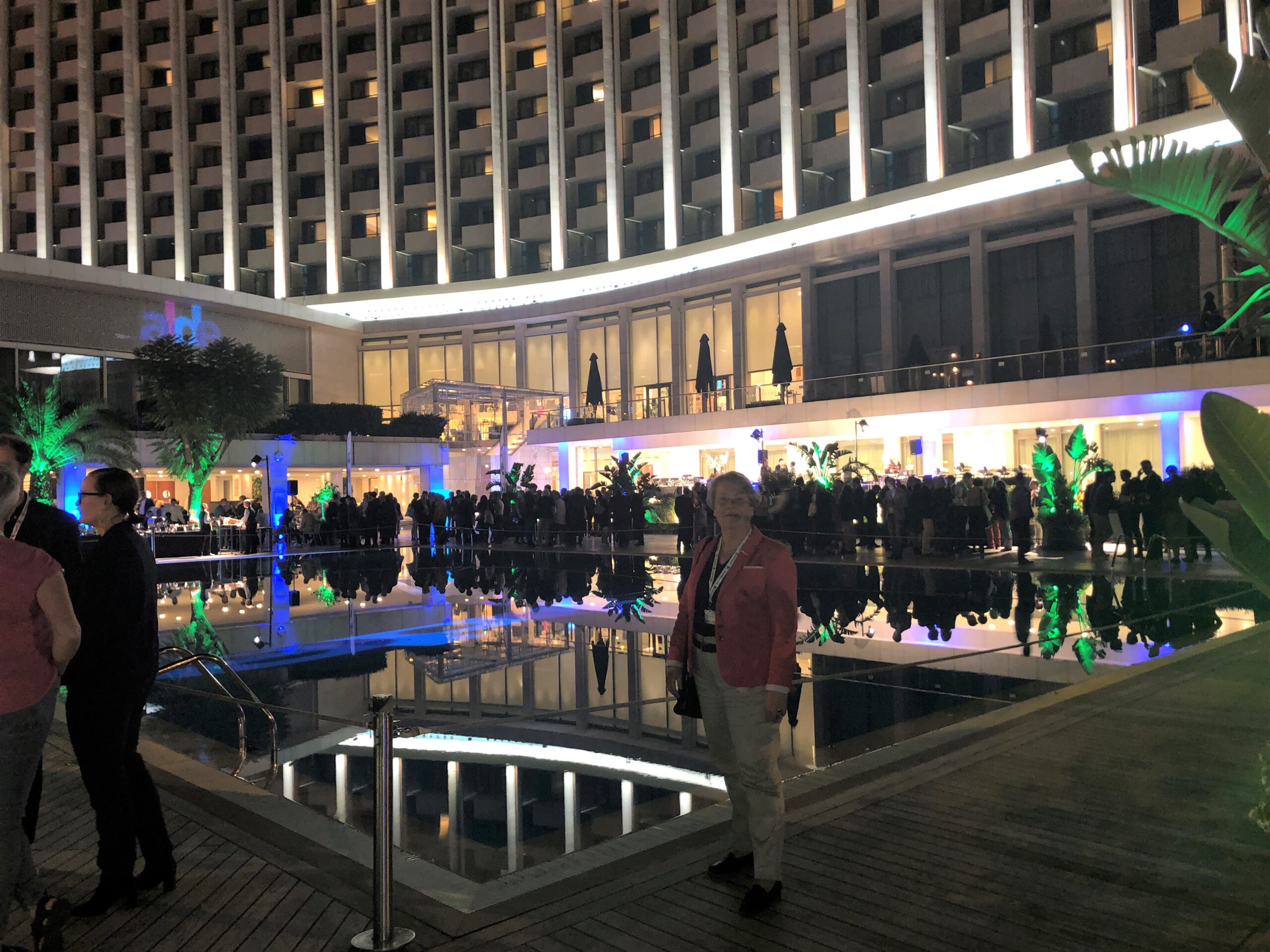
In the evening of our first congress day, Friedrich Neuman Stiftung sponsored the welcome reception/dinner around the swimming pool at the Hilton. During this very nice evening we met all the new parliamentarians who have been chosen in the European parliament and some of the potential candidates for the ALDE Bureau. The next day was started with some workshops and followed by the opening ceremony.
The official opening gave us inspiring speeches from many members.
Hans van Baalen began welcoming us ending his speech with the wish: “let’s unite and let’s go forward together”, followed by Davian Ciolos, the new Renew Europe leader in the European Parliament who stressed on our common values. The Renew Group defends the liberal values actively. Important is creating welfare, while promoting economic opportunities, while mobilizing people. How can we transform challenges into opportunities? To create jobs; to mobilize the young generation to transform Europe and to have open mindedness is necessary to achieve this.
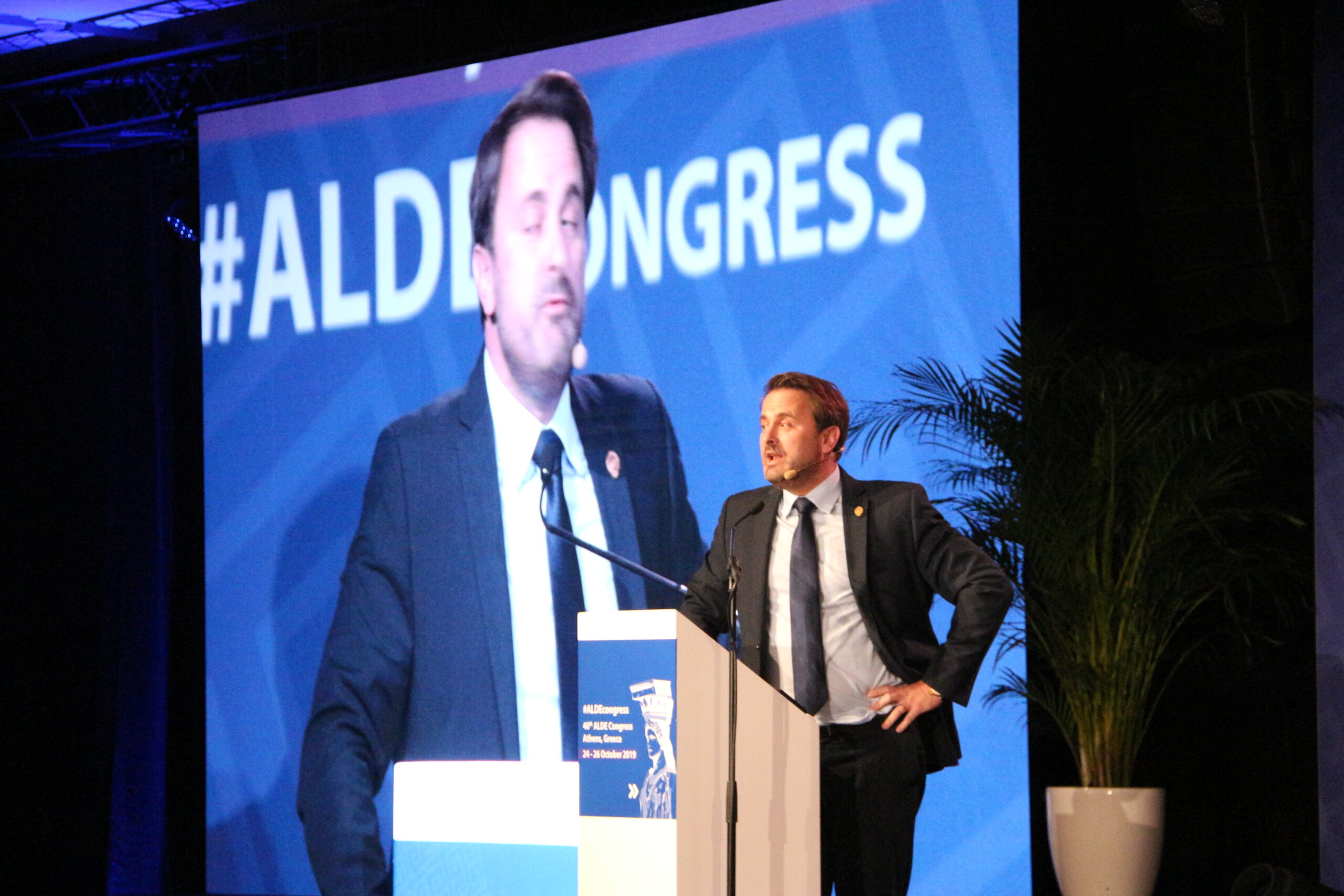
Xavier Bettel, the Prime Minister of Luxembourg, started giving vent to his deep regret about Brexit. He is convinced that if all details about Brexit had been said before the elections, then Britain would not have said no to Europe. He is one of the several liberal PMs and is making some important improvements in Luxembourg. The separation of church and state, legalizing abortion, liberalizing drugs and same sex marriages are some of the new steps that he has taken with his government. He also wants to stress that Europe is a peace project and we must never forget this. That is something we can still ask our grandfathers who were willing to fight for our freedom. He received a warm applause from all participants.
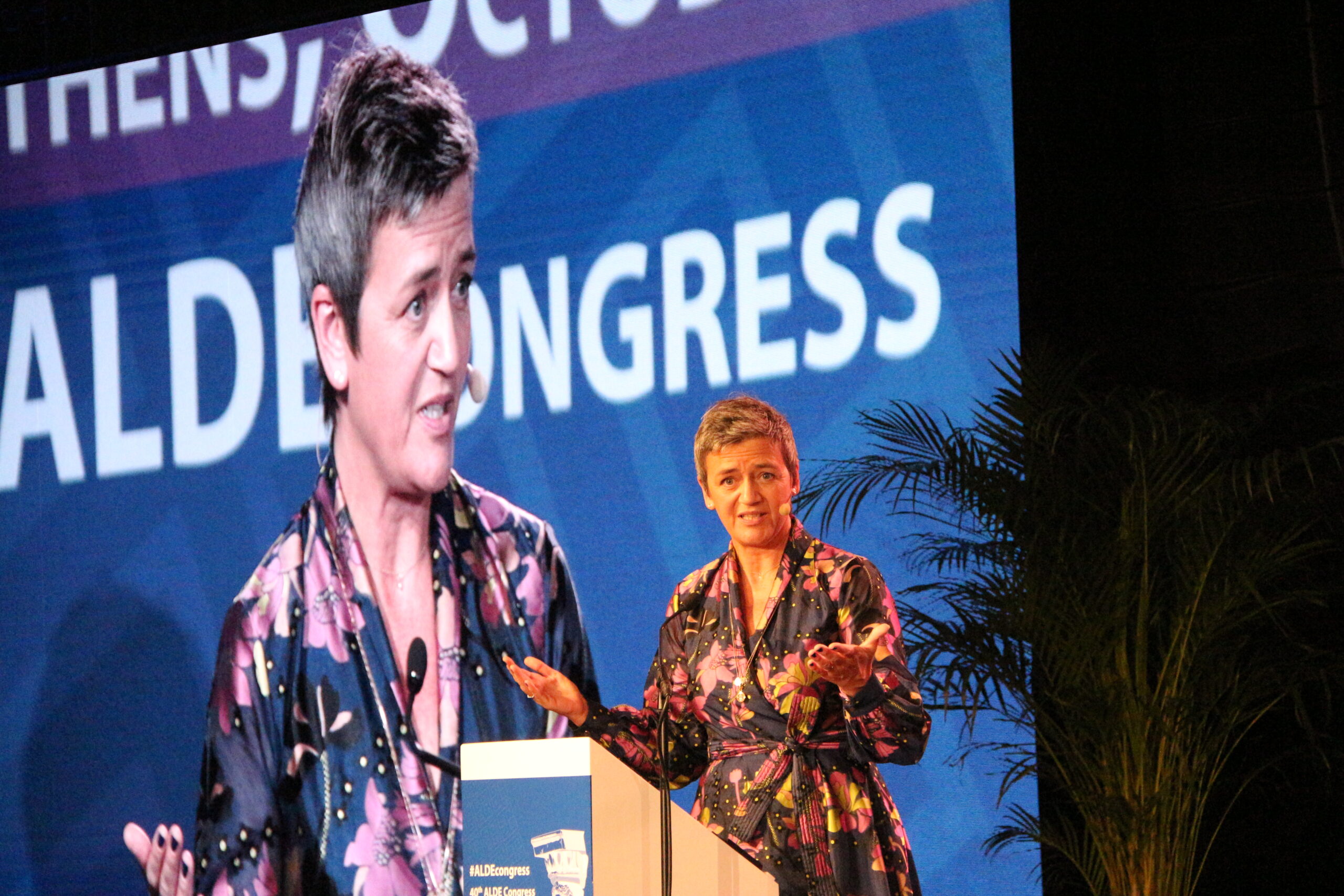
Margrethe Vestager, executive Vice-president of the European Commission for a Europe fit for the Digital Age. She stressed that in this time, it is important to see each other, only digital contact is not enough. It is much easier to have a discussion once you are together in a room. One of the important issues for liberals is, that in a discussion you can disagree and still all belong to the same party, that is part of our liberalism. Of course, we find the rule of law, to act with common sense and to respect each other also very important aspects.
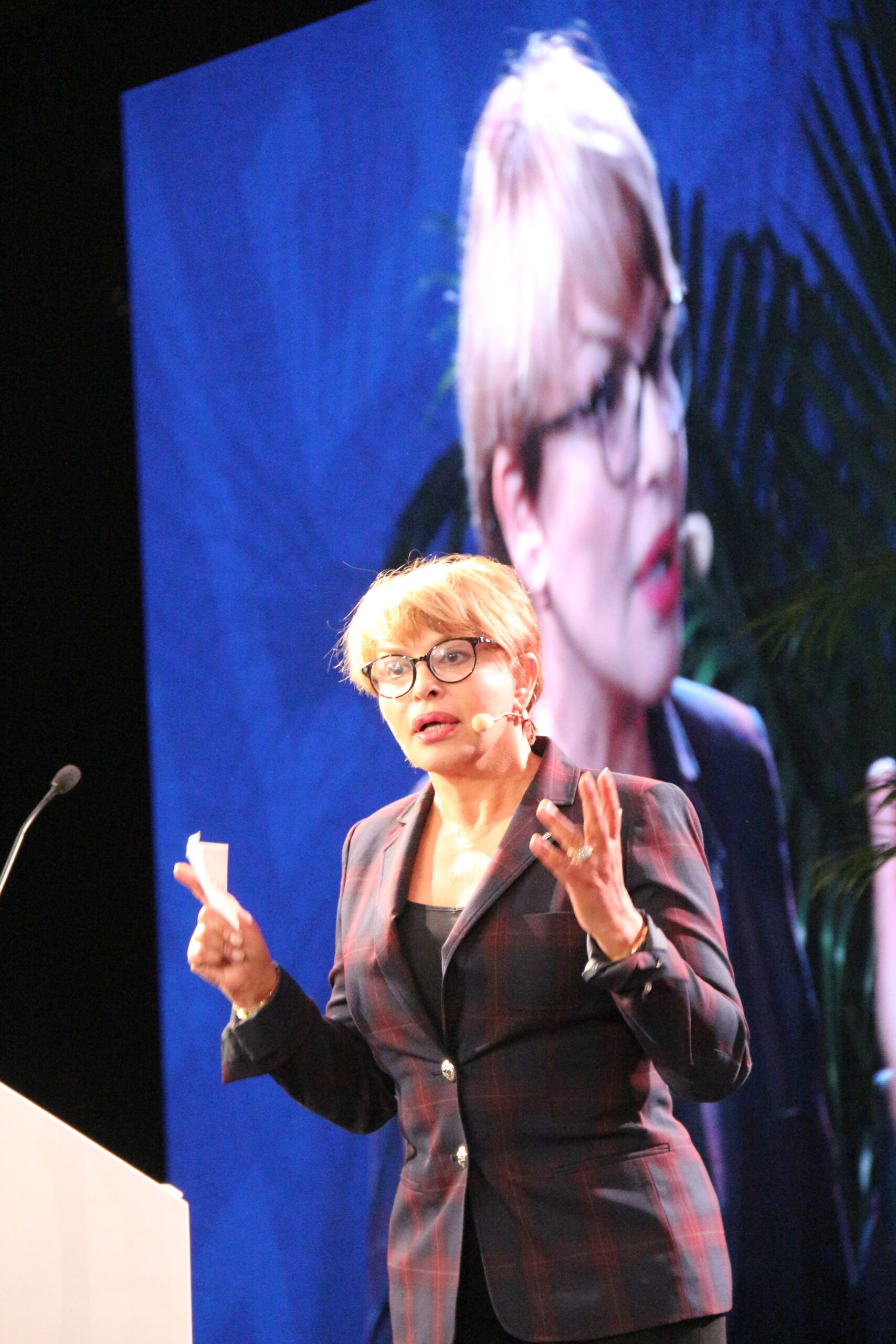
Vera Jourova, vice-president for Values and Transparency. She added to focus on our liberal values such as equality, rule of law and respect. And stressed on the importance of the monitoring of corruption in the media, dis-information, medical freedom and protecting our journalists. They need more legal protection. We must pursue a peaceful and sustainable future. These issues will be important in the European parliament in the next term that has just started.
We will see our liberal MEPs and members of the Commission in their new roles working for our liberal values and for the time being Brexit and the result of that discussion will have much impact on the future of Europe. There was also an inspiring speech by Liberal International President, Hakima el Haiti, stressing that we liberals within Europe and in the rest of the world need each other and must support each other to achieve our goals of a liberal society, especially in the current situation of rising nationalism and populism in so many corners of the world.
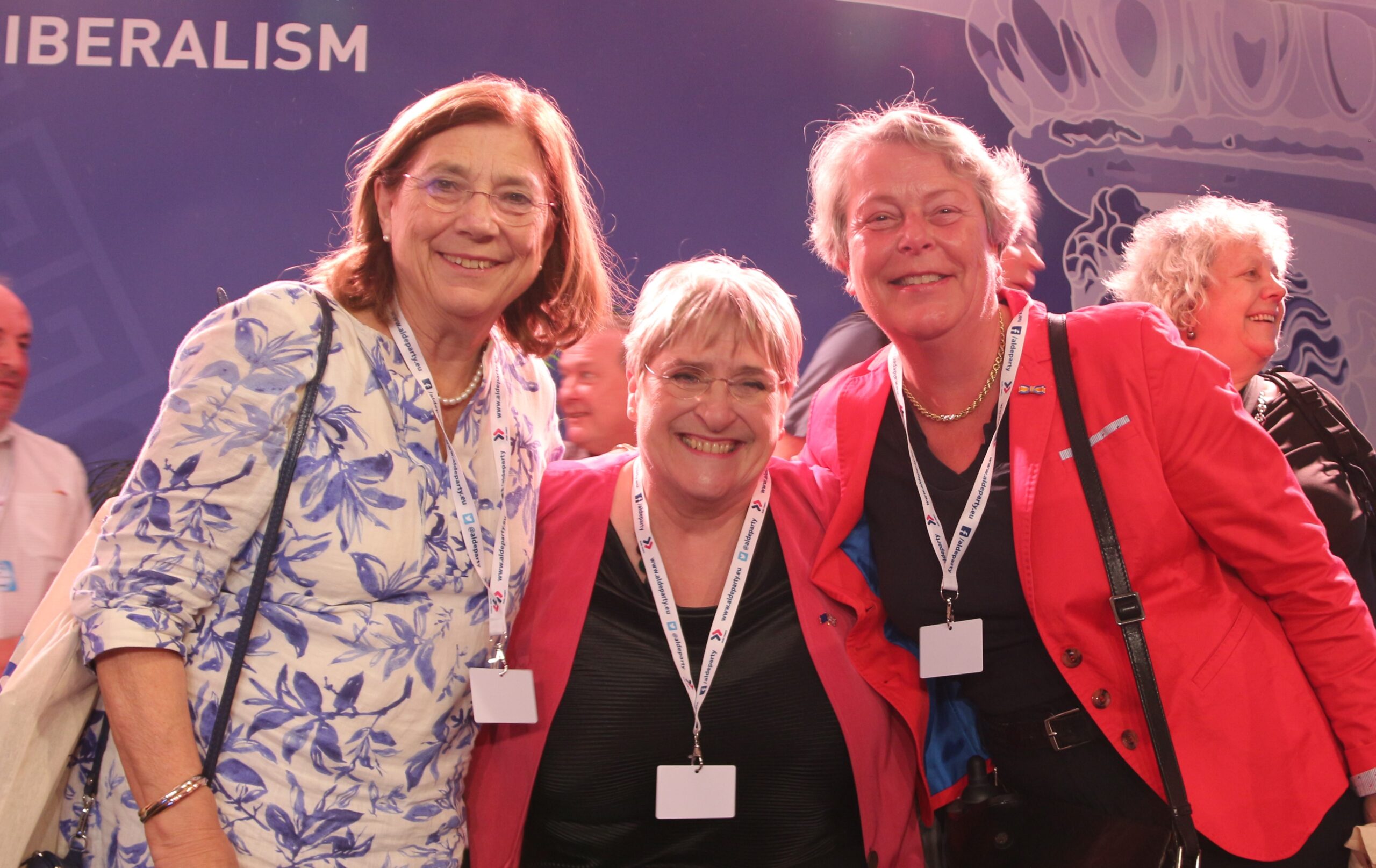
There were many sessions in which all the amendments for the resolutions were discussed. We as member delegates had to be present during these sessions. Not only were the voting procedures for resolutions important but new vice-presidents had to be appointed. So, voting for persons was also one of our issues. One of the candidates was Baroness Sal Brinton. Baroness Sal Brinton will reach the end of her term as President of the UK Liberal Democrats and she finds it a privilege to become a member of the ALDE Bureau. Her motto was: “We need to fight like Liberals to defeat populism and prejudice”.
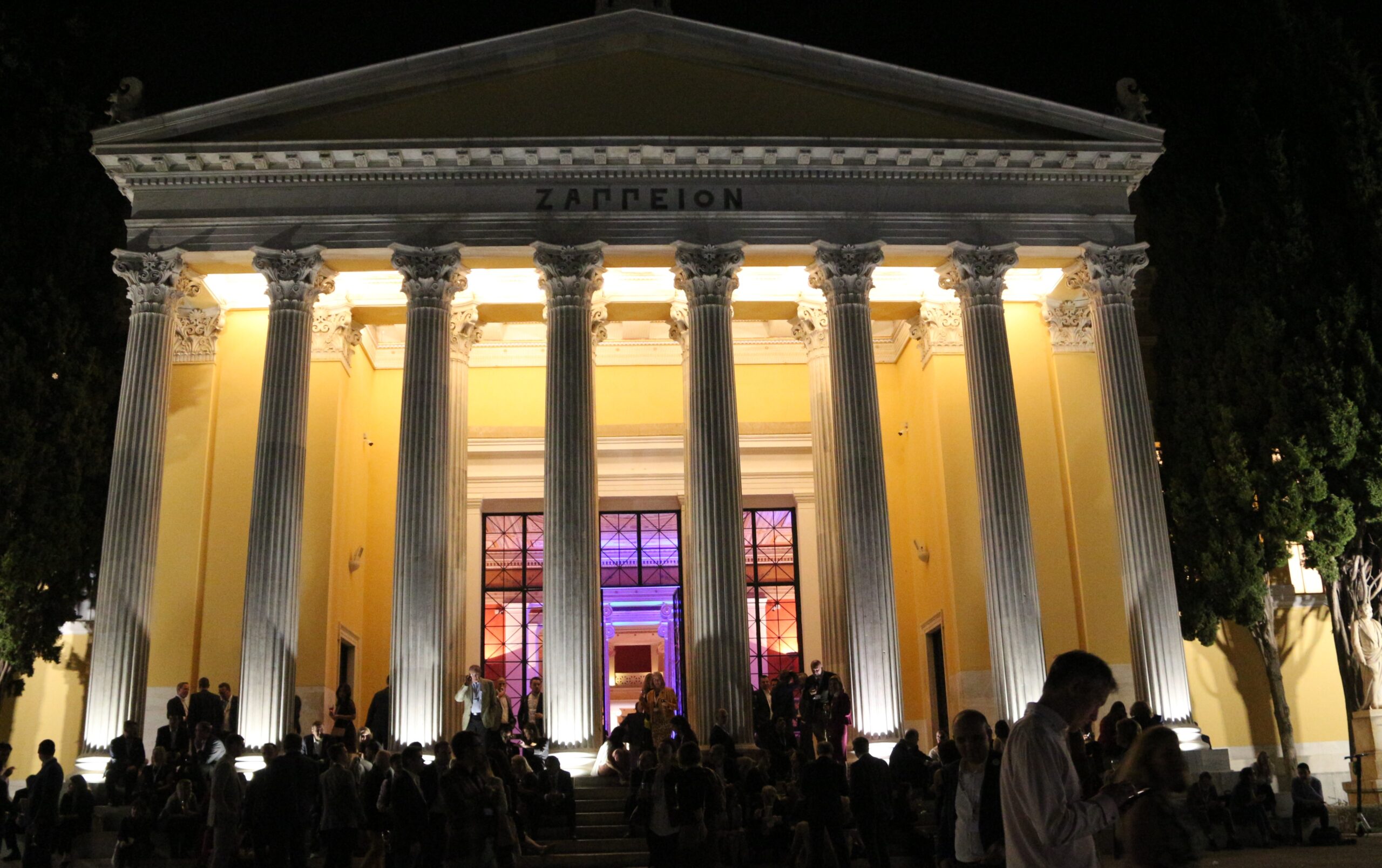
In the evening we were welcomed in one of Athens beautiful palaces: The Zappeion, this building was built for the Olympic Games and used in 1896. Many important events took place such as the official signature of the documents by which Greece became a member of the European Parliament on 1 January 1981.
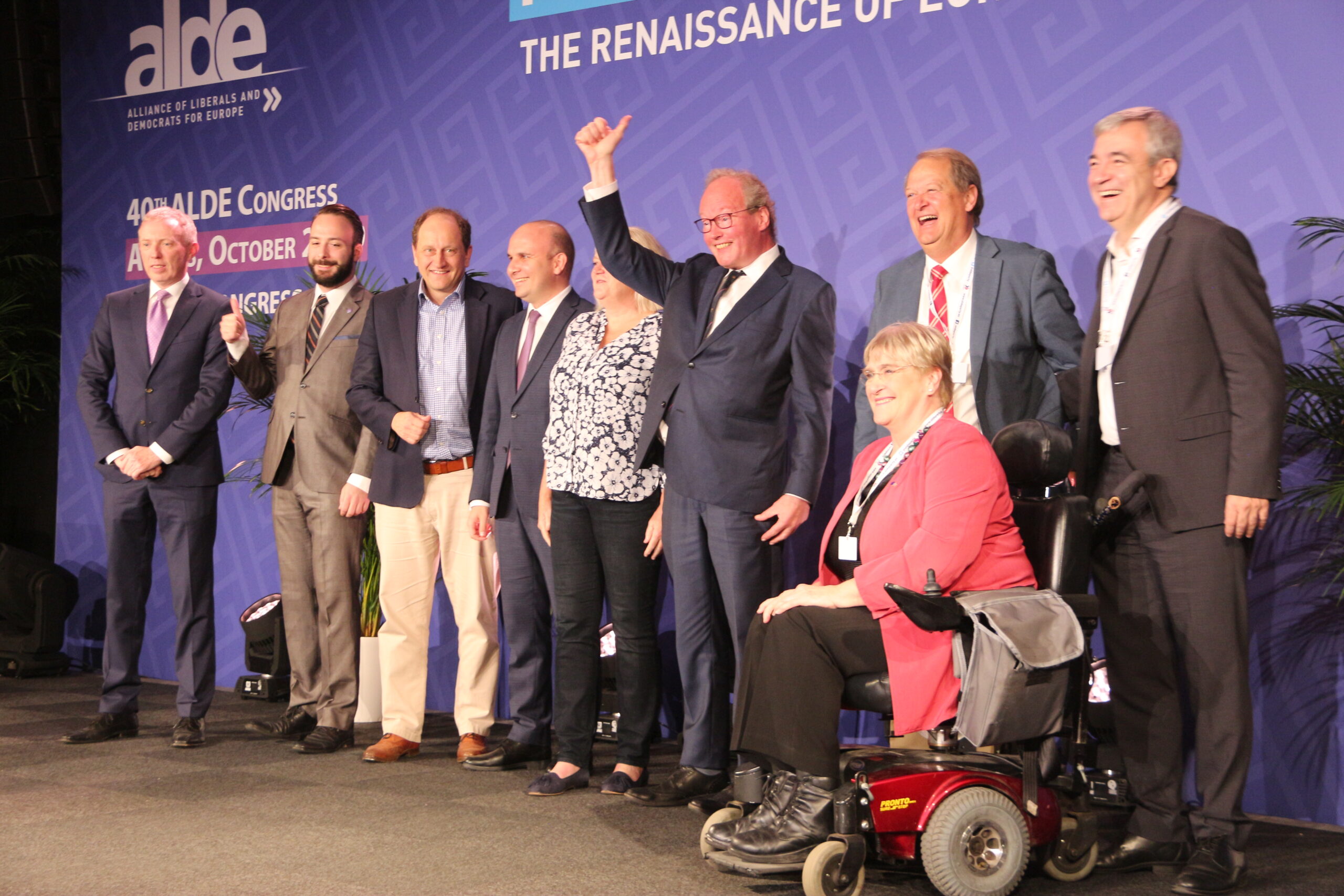
The next day resolutions were accepted and finally the result of the election of the members for the ALDE Bureau was announced. Hans van Baalen was re-elected as ALDE Party President. INLW is very happy to announce that Sal Brinton has been chosen as one of ALDE’s new vice-presidents. The other new members chosen are: Alexander Graf Lambsdorff (Germany), Annelou van Egmond (the Netherlands), Ilhan Kyuchyuk (Bulgaria), Timmy Dooley (Ireland), Daniel Berg (Hungary).
It was again an interesting and pleasant meeting where many of our liberal friends were present. Many of us will follow the discussion on Brexit even more closely and hope that this important issue will be solved at the end of January 2020.
Next year in 2020 the ALDE congress will take place in Stockholm, Sweden.
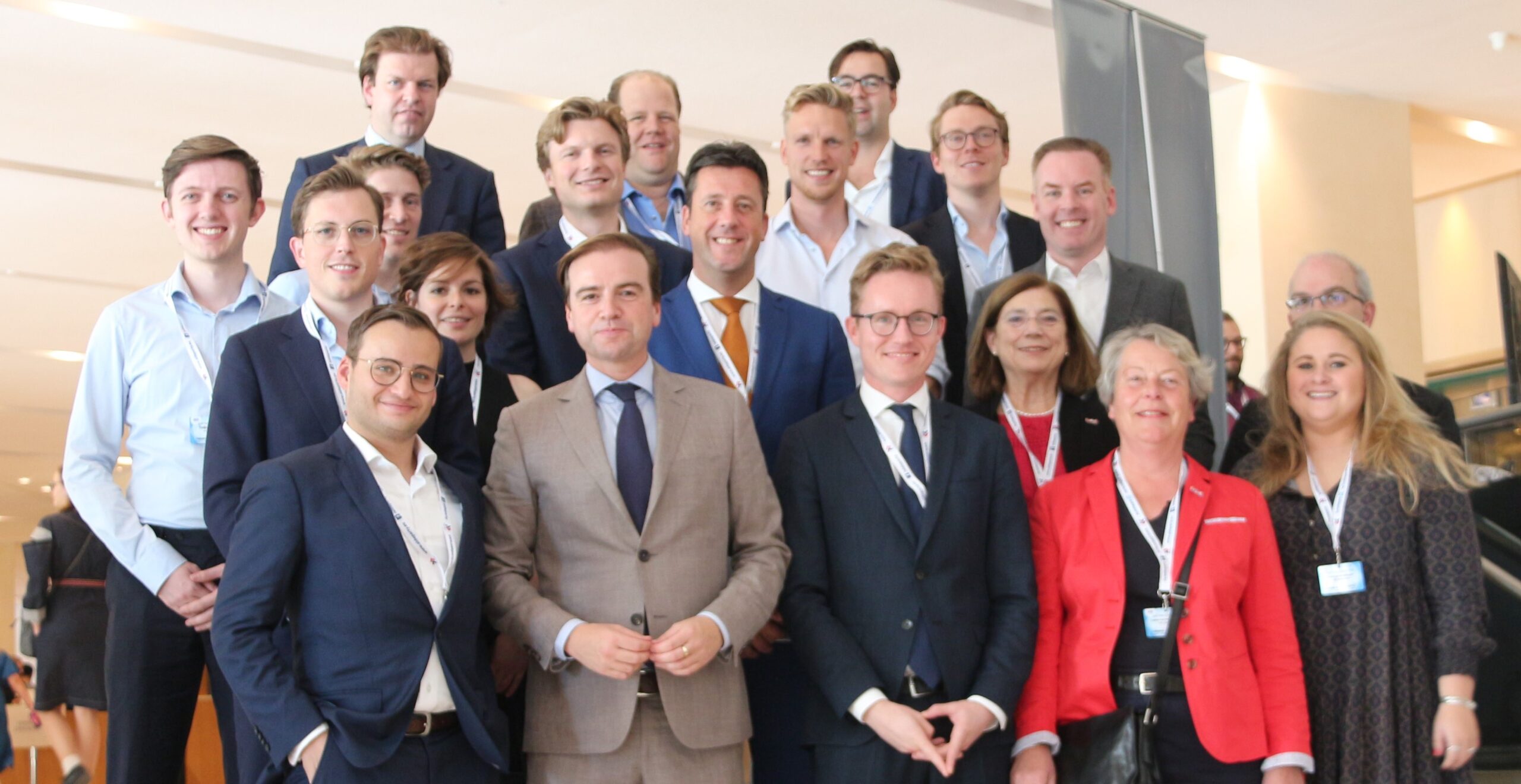
This year the UN CSW was set with the title “Social protection systems, access to public services and sustainable infrastructure for gender equality and the empowerment of women and girls”
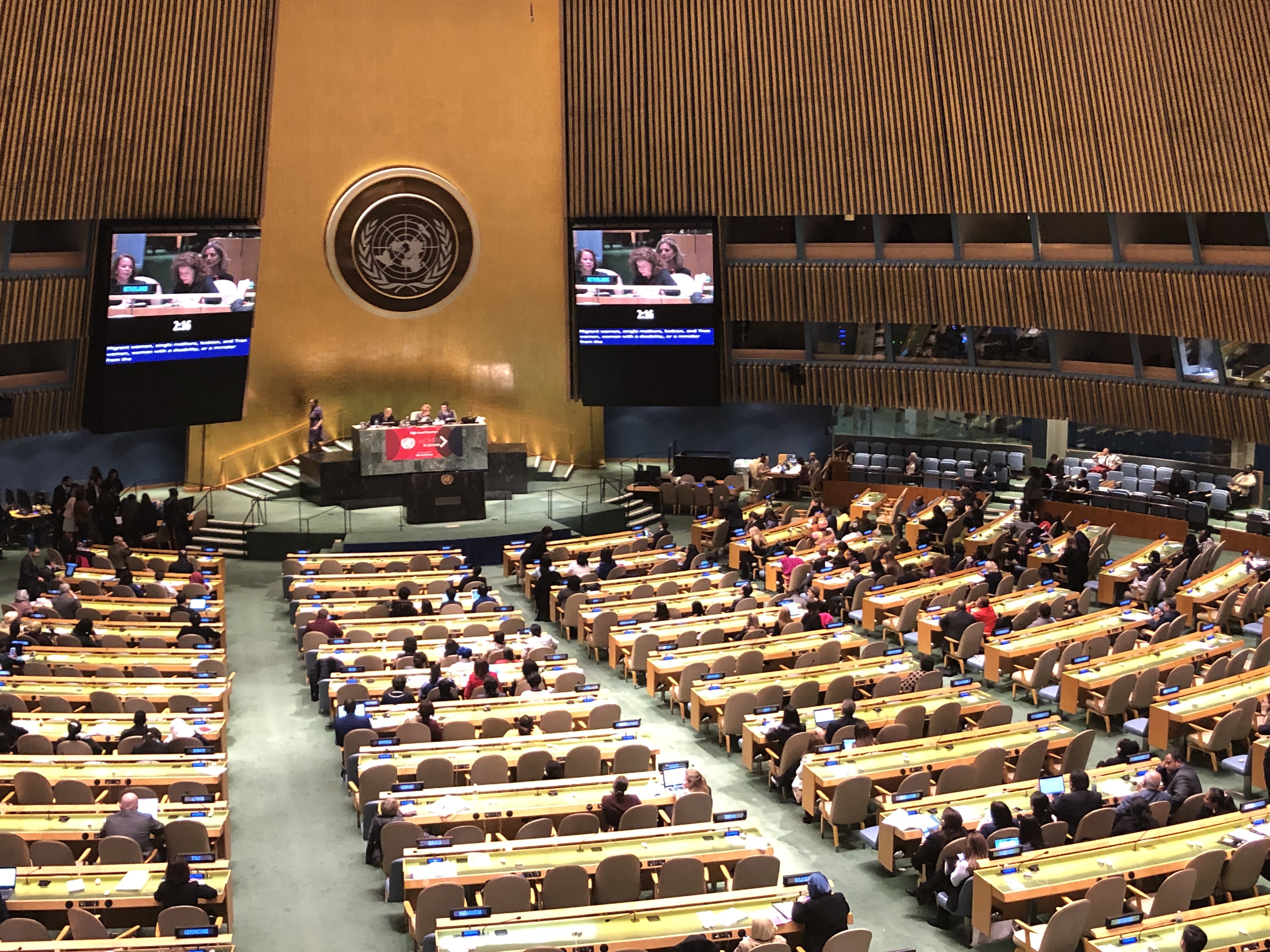
Several members of our INLW board were present. Our new president Jayanthi Balaguri, Margaret de Vos, Lysbeth van Valkenburg, Khadija El Morabit, Maysing Yang and Ruth Richardson were present during the opening ceremony, as well as Joaquima Alemany. Many persons from African and Asian countries were again not able to get visa’s to enter USA, like Awa Gueye our newly co-opted Vice President from Senagal for Sub Sahara Africa who had worked hard to get a big INLW delegation from Senegal and Mali to visit the CSW, but she herself received her visum just after the end of CSW! You wonder if the UN should stay in New York if people from around the world are not able to visit the UN because of US visum problems! We were able to welcome some new members though during CSW.
The opening started with a moment of silence for the lives lost in the tragic plane crash in Ethiopia.
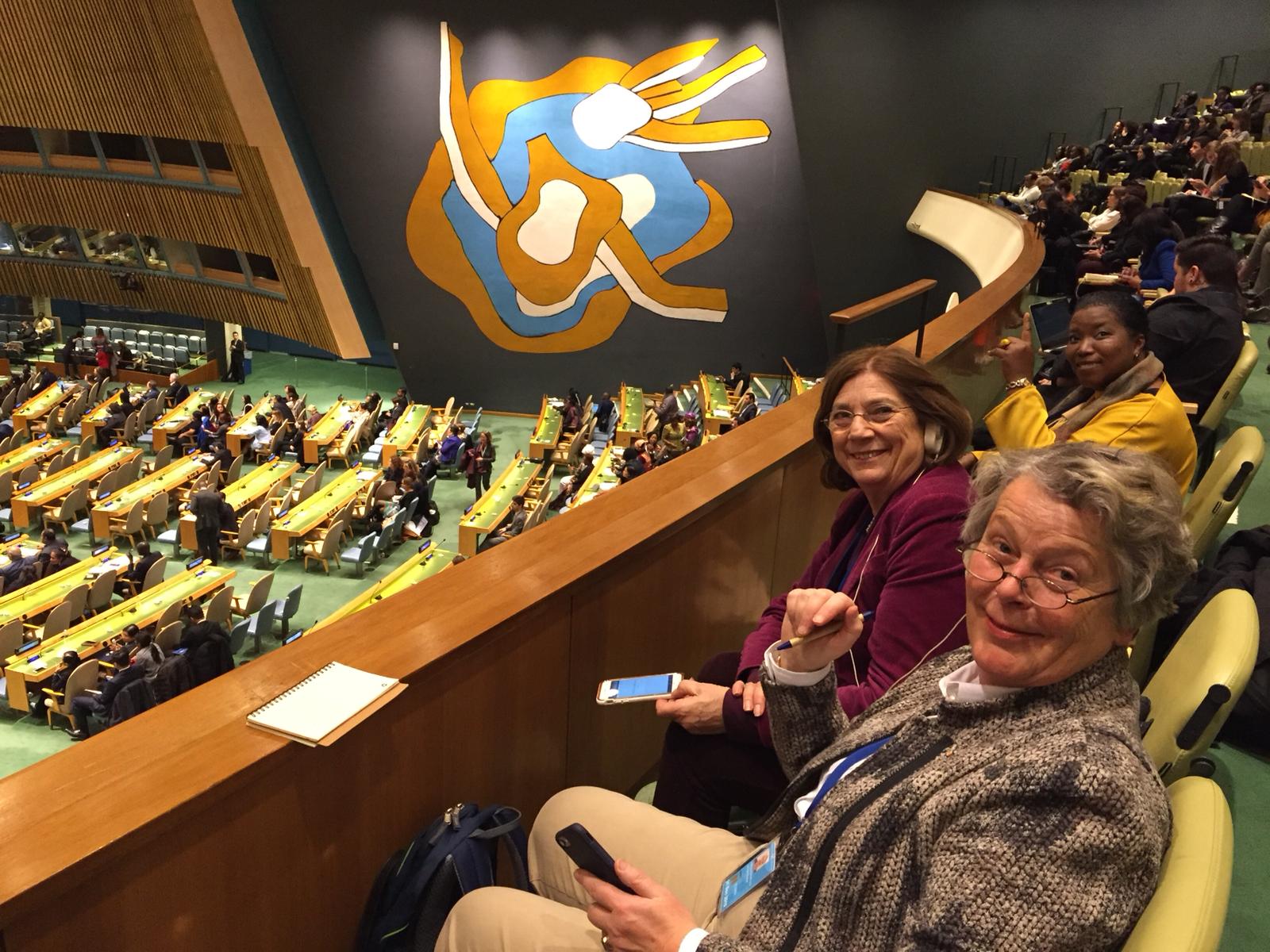
Ambassador Geraldine Byrne Nason (from Ireland) CSW63 Chair, gave us some good statements on the theme. “Changing laws goes hand in hand with changing gender norms, we are all responsible for women’s empowerment, and all responsible for making our societies more equal: to create positive change and share policies.
Increasing the financial capability of girls as well as awareness of their rights, helps them take advantage of economic opportunities. Over 100k girls will receive financial educations through life skills programs.
Women are leading the way in efforts to build resilience and adapt to the impact of climate change. They pick up the pieces when families are forcibly displaced or struggle to recover from conflict”.
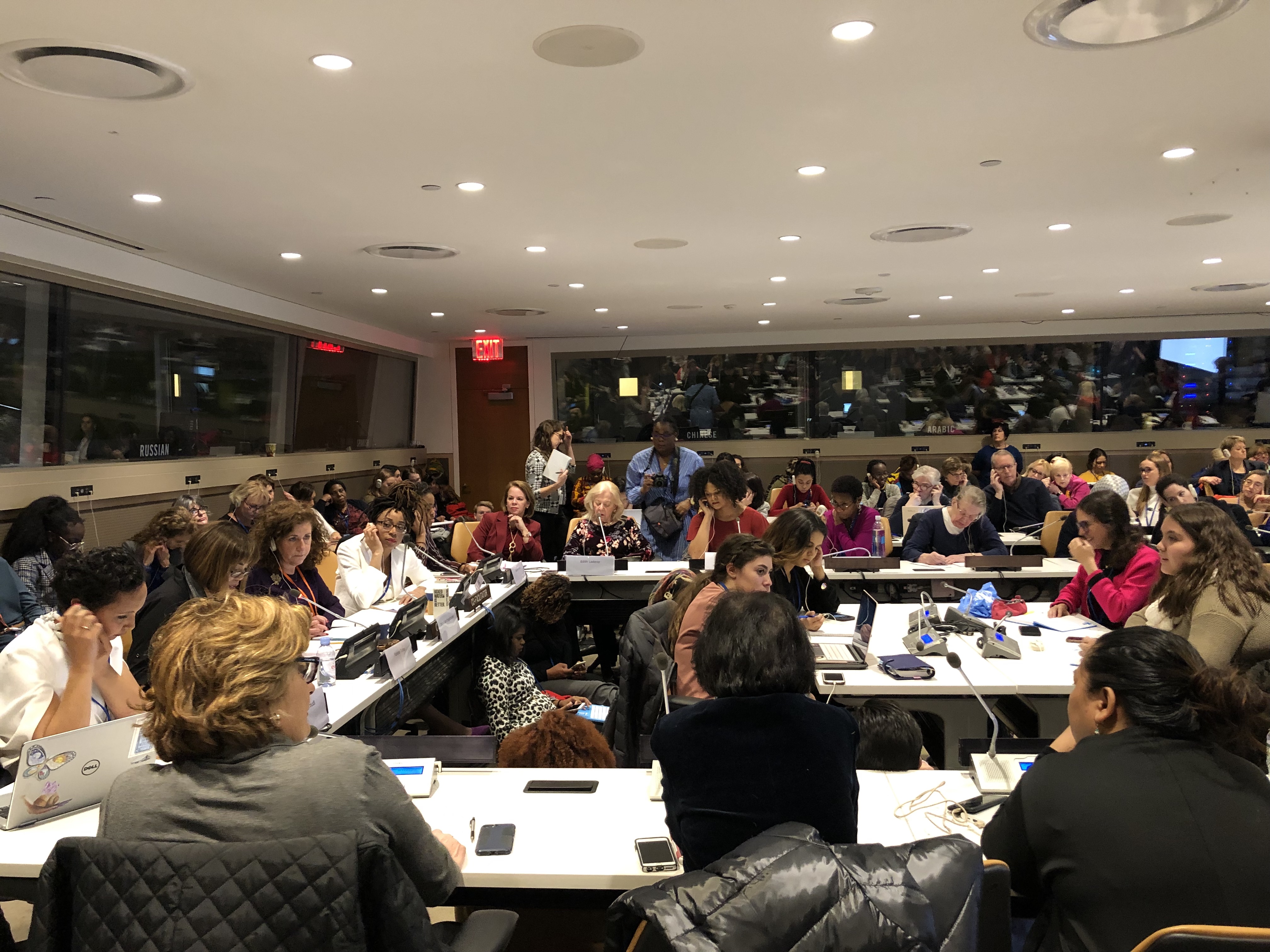
“Without a good basic structure woman won’t get any good position and rights. Laws, education, health and transport are important. In India we can see the result with more education there are more women in higher positions”. As Mrs. Nason stated in her opening of the 63rd CSW.
After the general opening all the various workshops and parallel events started.
The Monday morning session organised by Liberal International and INLW took place even before the official opening and had the title:
“Gov Ids My number, So Track Me Maybe?”,
do technology-based systems prevent long-term risk to democratic integrity? Discussion on the social protection implications of introducing digital IDS for the empowerment of women.
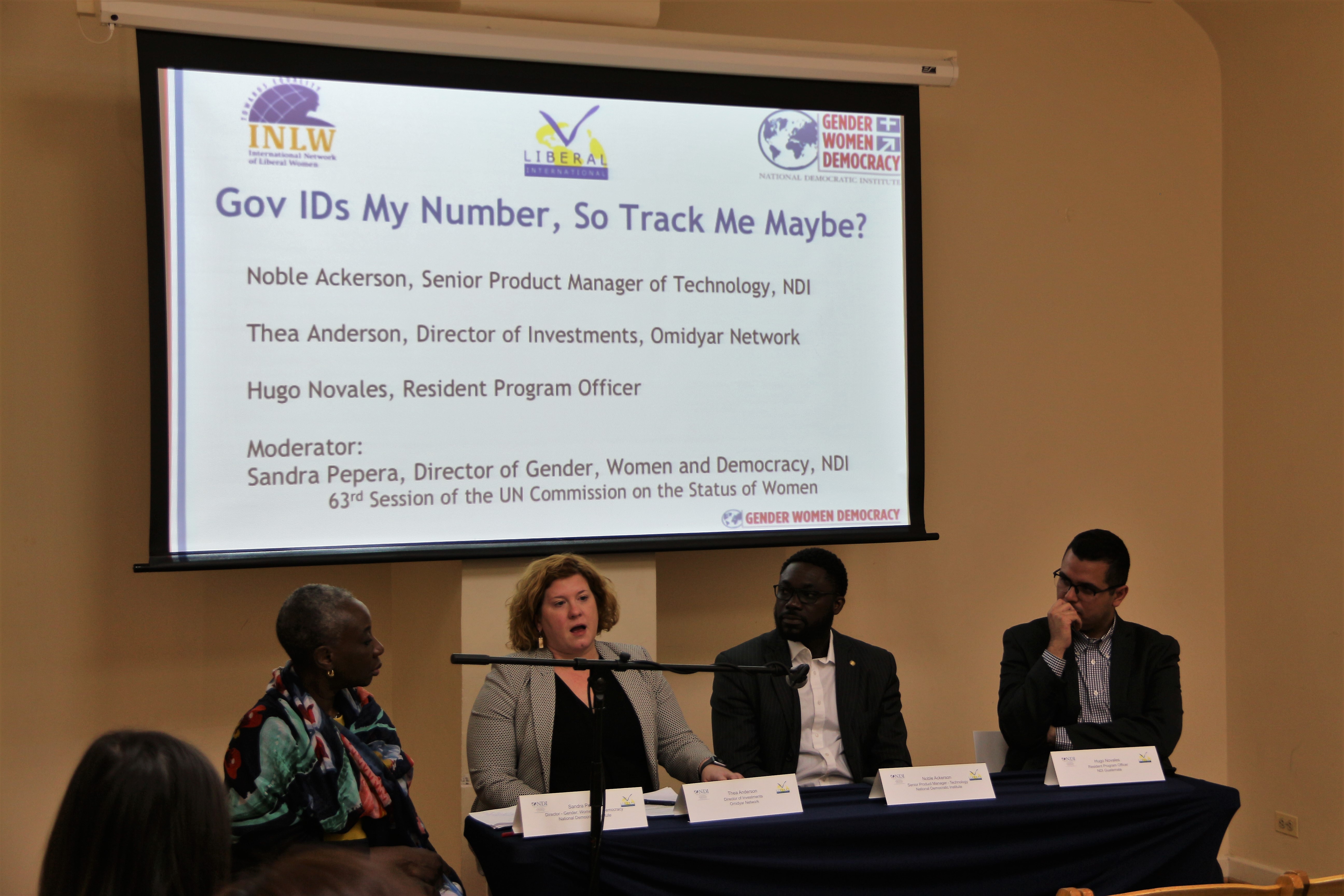
Sandra Pepera, director for Gender, Women and Democracy, NDI, was moderator during the session. Participants: Noble Ackerson, senior product manager, Technology, Thea Anderson, director , Omidyar Network and Hugo Novales, regional Program officer, NDI. They gave their different views on technological development for women and girls.
Digitization can do a lot for mankind as was concluded. Before we all became digital over a billion people had no access to a passport or ID. The poorer they were the more rare the opportunities of getting any ID. If you are without an ID how can you get money or a house for instance. It also implies that you are unable to get security or health care. At the moment 55% of the world population has no digital ID.
This is one of the most important issues for any government to organize as soon as possible.75% of our health care is linked to our ID, 11% has direct digital voting capacity. Digital ID gives efficiency but also many possibilities.
In Pakistan in 2009 14 million women had a digital ID to health care, at the elections 11 million were absent during the voting for parliament. Possibly because they were afraid to vote.
75% of our health care is linked to our ID, 11% has direct digital voting capacity. Digital ID gives efficiency but also many possibilities.
In Pakistan in 2009 14 million women had a digital ID to health care, at the elections 11 million were absent during the voting for parliament. Possibly because they were afraid to vote.
Thea Anderson concludes that it is quite a step to a digital world which also has to include privacy, choice and security. At the moment 148 countries are working with a digital system.
Noble Ackerson, from analogy to digital gives control, privacy and security as advantages. But governements often want to know a lot of data and are not prepared to give people insight in all they know. So we all have to be alert what we want to share, make our own choice.
Hugo Novales, with an ID you can show that you exist. It is not how to use data but also what is a government doing with the data when digitizing. Also who is the owner of the data? Where are our data stored?
Why do we want an ID? It is linked to social payment, so it is useful for our finances and important for education, but for any digital use you need electricity.
Regulation of data is important, there is a enormous amount of big data today.
In some countries, If you want to vote you have to register:
2007 43 million women went to vote
2011 50.9 women went to vote
2015 53 women went to vote because they were able to register because they possessed an ID.
In many countries banks are owned by the government so one must be alert to share ones ID and protect ones privacy, one must train people on all the risks.
Laws must be made to make it safer: data protection laws. Special laws have to be made for Google. Before you are using data, you always have to ask the owner. Digitalisation is a tool, but governments must be trustworthy. How long to retain information and at what cost. We must be careful and know what we are doing with our ID and data!
The panel gave us an interesting insight of all challenges and risks that are part of this new digital world.
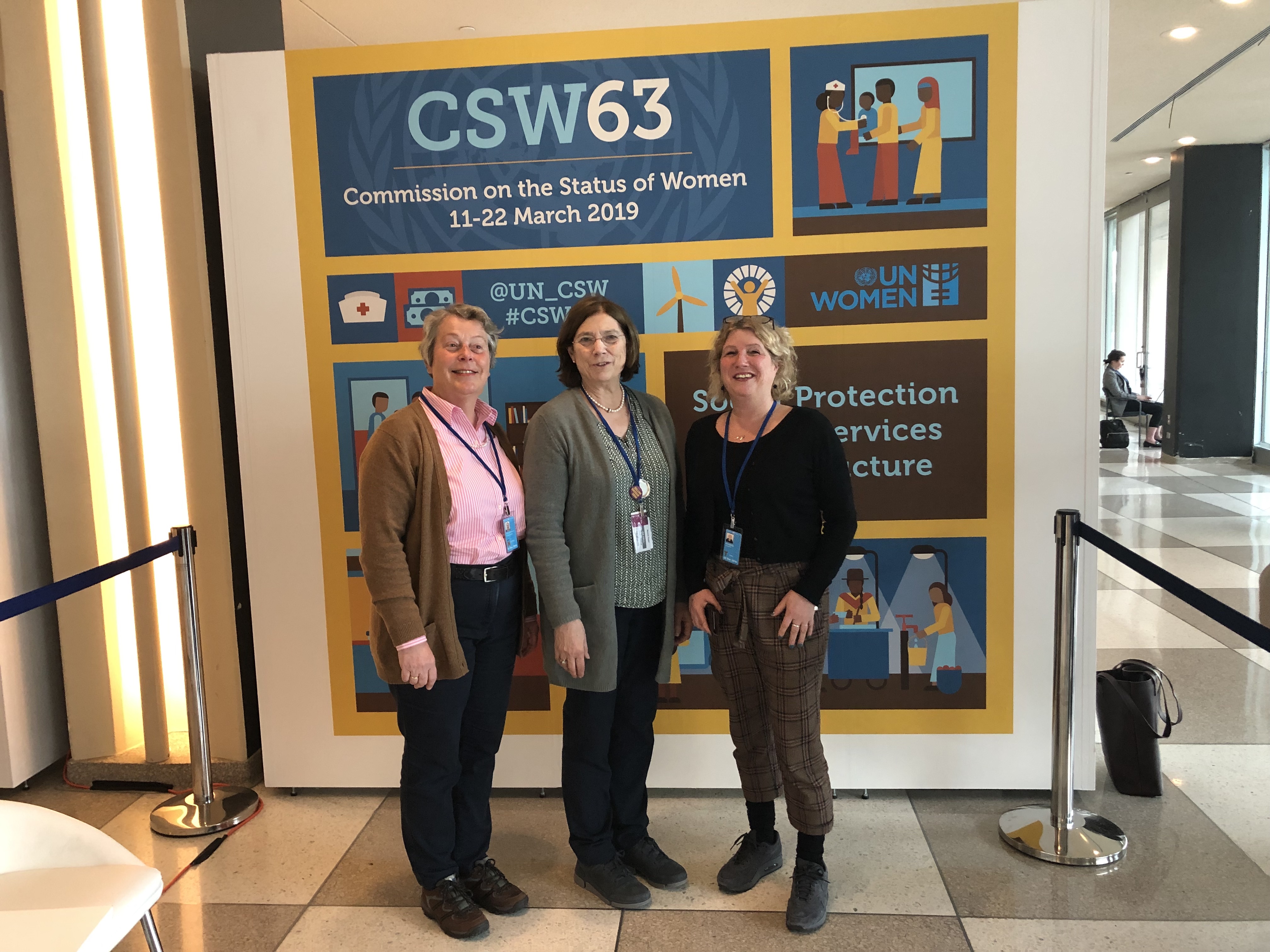
Another interesting panel discussion was about “Women in Media”.
Media informs, influences and shapes the world we live in. Journalism exists to serve the public and represent society. But unfortunately, women and minorities remain largely underrepresented. Both in front of the camera as well as in positions of power.
We see that in most media the men are the experts that are asked to give information.
Women have to make connections to form a network and thus become more involved. To show themselves on tv and other media.
But also in governments some countries show very few women in the decision making positions.
The start is in education; schoolbooks have to be updated with more examples of women in photo’s showing them at work and showing their achievements.
Women have to protest to committees or penal judges where there are only men holding the seats. They have to speak out to get more diversity.
We need more men to help us to get this done. Many choices are made by white men, they need convincing that any committee needs diversity to deliver good work.
In some parts of the world, safety is also a cause for women not to participate in official positions.
In the new digital world girls and women are facing harassment, so also in this medium safe spaces on-line are important.
Many choices for positions in government or other important places are made by people who tend to choose persons who resemble themselves and thus limiting possibilities for more diversity.
One speaker, a reporter working for one of the international bureau’s, was the first woman reporter sent to war zones in 1972. As she did this very well she was sent to other war areas such as Afghanistan, Northern-Ireland, Ruwanda, Bosnia and Israel. Her career is an example for the progress that has been made. But in media and boardrooms men are still uppermost present: there is a world to win for girls to make their mark in these positions.
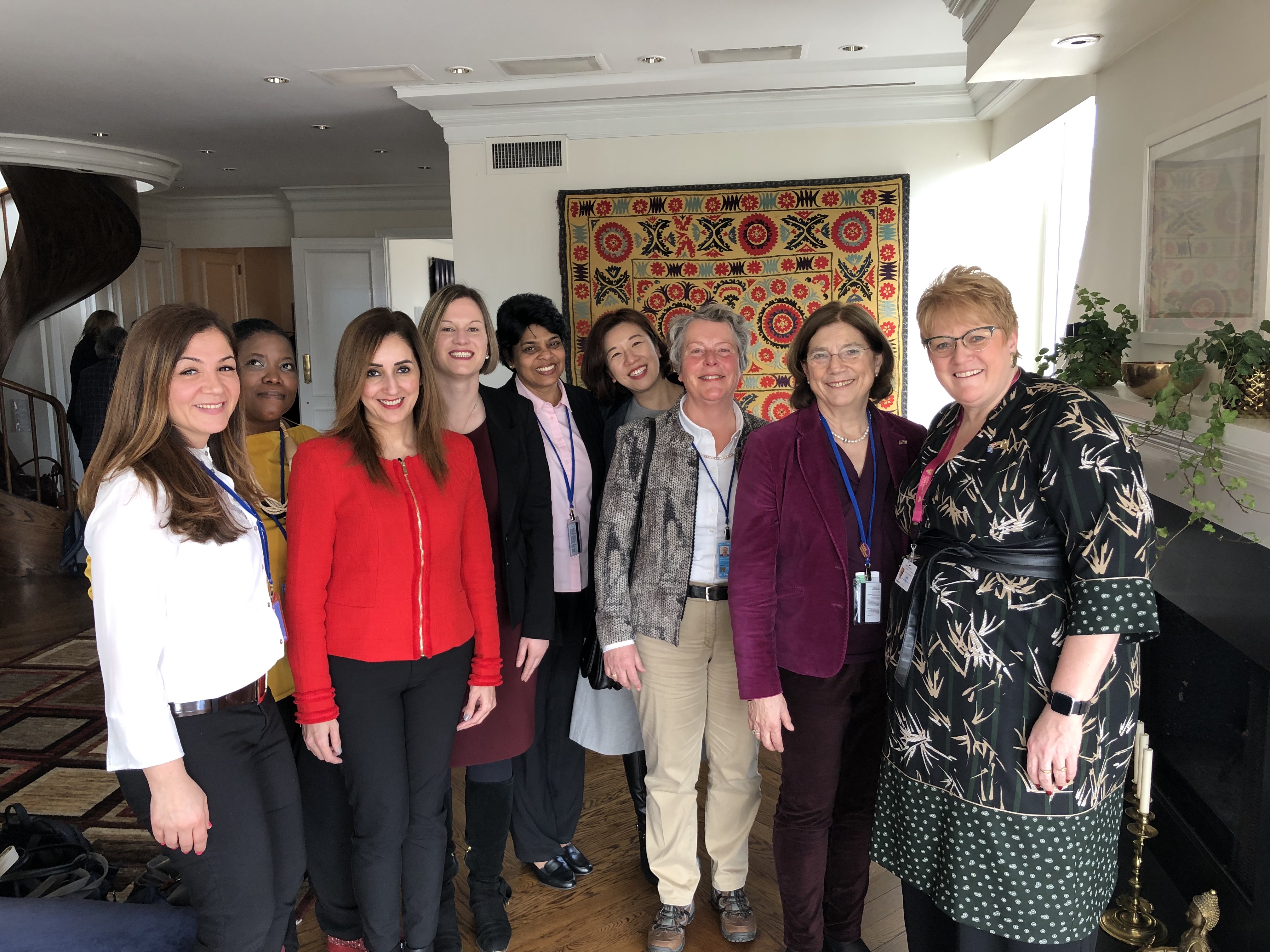
During the first week we also paid a visit to Minister Trine Skei Grande, Minister of Culture & Gender equality, Venstre Norway. She told us about the progress that has been made for the position of women in Norway. Wealth is especially increased because women are working.
In the political parties there are 4 women party leaders.
Maysing Yang told us about the difficulties in Taiwan, the law has to be changed first for women to get more possibilities such as ownership of their own business.
Khadija el Morabit could tell us that in Morocco on paper things are equal but in reality there are many problems for women and girls to get into important positions.
Jayanthi Balaguru, president of INLW, gave as a view about the problem in her country Malaysia where the enormous difference of culture and religion makes it difficult to reach any equality. But with support from all over the world the balance will be reached.
Minister Skei Grande told us that in Norway women’s rights were an issue but it is improving. The best way to get result is in education, but also health issues such as safe abortion are vital for progress.
At the moment there is a discussion about maternity leave. The government wants to divide it between men and women, so 1/3 for the women, 1/3 for the man and 1/3 they can devide themselves.
This gave huge problems with the women who are not really
prepared to share or give such a privilige to the man. So even in Norway there
is still a world to win.
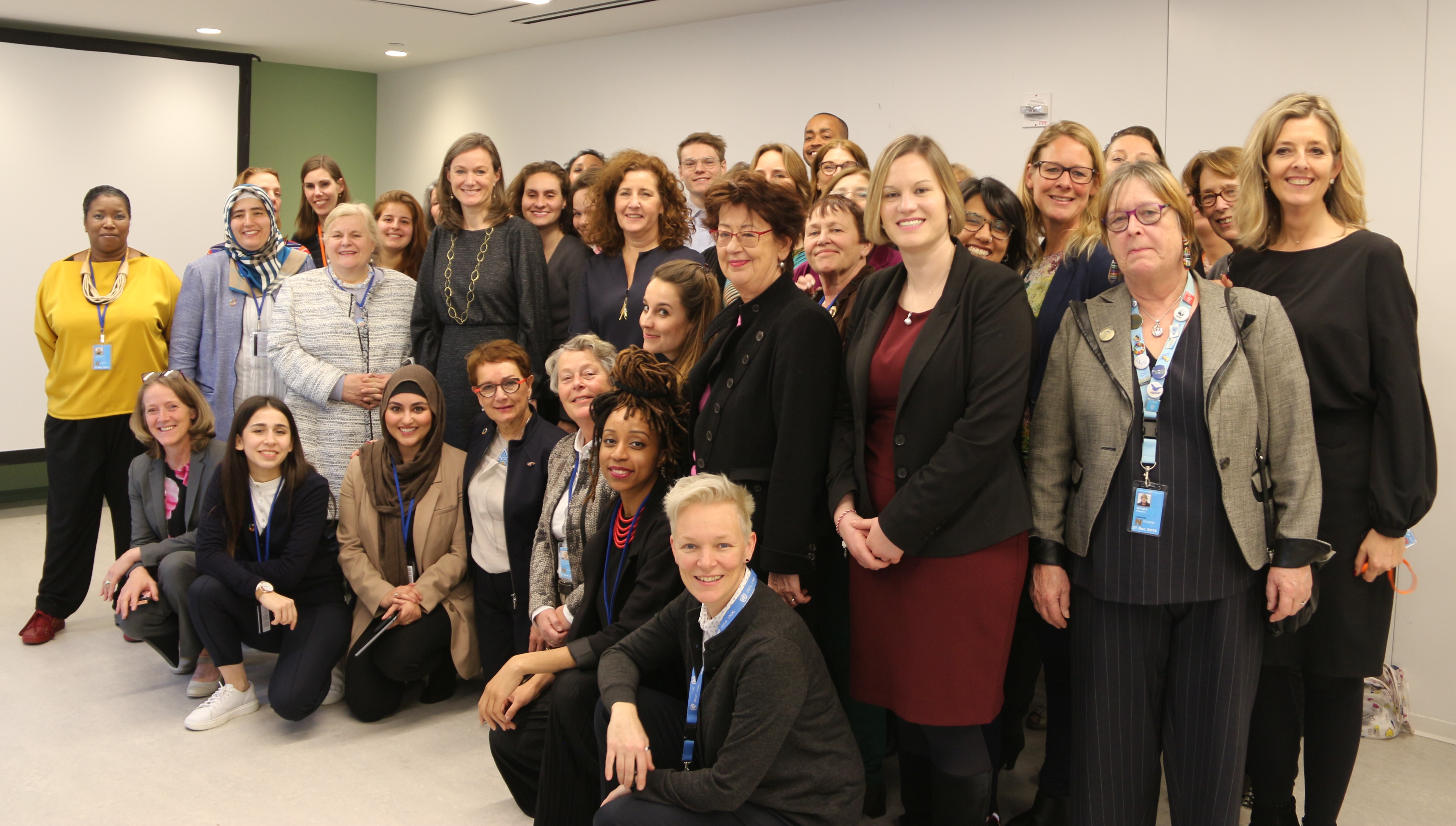
We also had a meeting with a large group of Dutch representatives including the Dutch minister of gender equality Ingrid van Engelshoven, she also gave a speech in the GA on behalf of the Kingdom of the Netherlands.
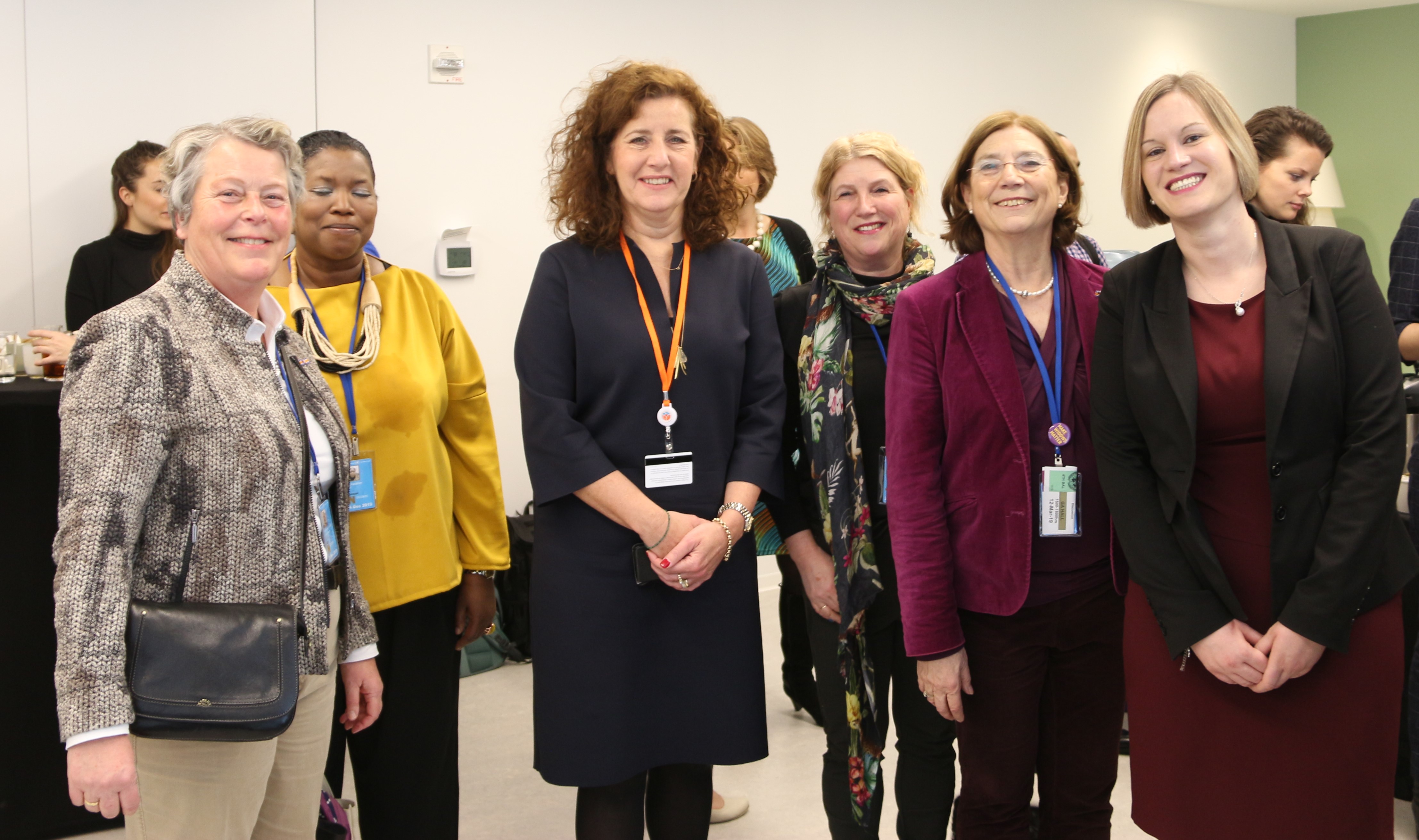
Another interesting event was about technology and education. Mrs. E.Focke-Bakker (Delft University) was one of the participators. She told us again what an enormous progress tech has given, but safety and security is essential for this development.
In universities we can see that students are easily connected and the young of today don’t always realise the importance of protection systems. They can study world wide with the MOOC’s (Massive open online courses) but good infrastructure for tech and affordable ICT is essential.

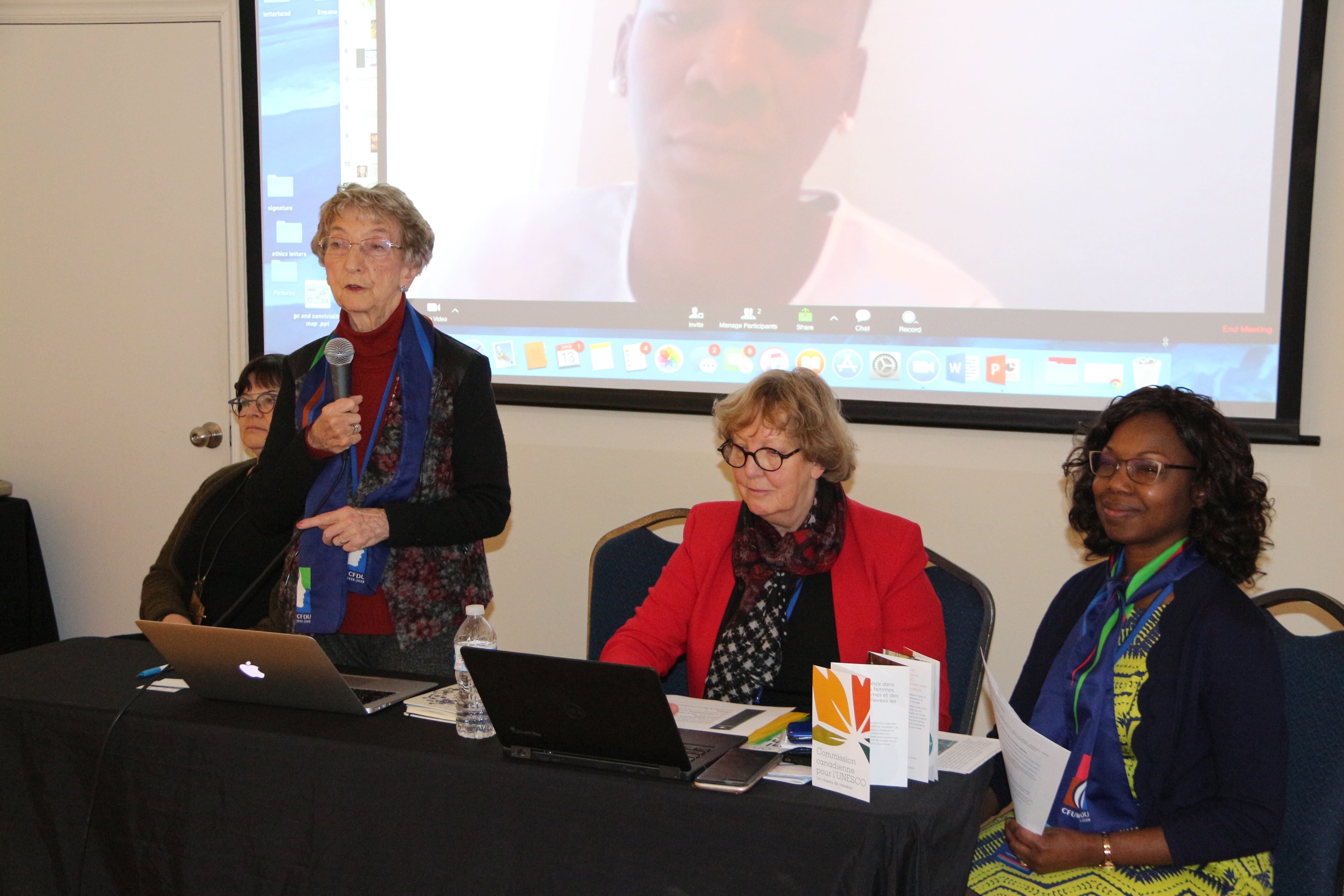
We must not forget that there are also people staying behind in this fast developing tech world. They need our special care. In the poorer countries the possibilities are enormous because of the tech development in education giving possibilities in their lives beyond school and they can study at home for their careers. Radio is also helpful if you can’t read or write.
Unfortunately we see cyberbullying and haressment, hate speeches and ID fraud as the new problems of the tech development. So there is a dark side to all the advantages.
Governments have to be aware and introduce new laws to protect users of the new ICT.
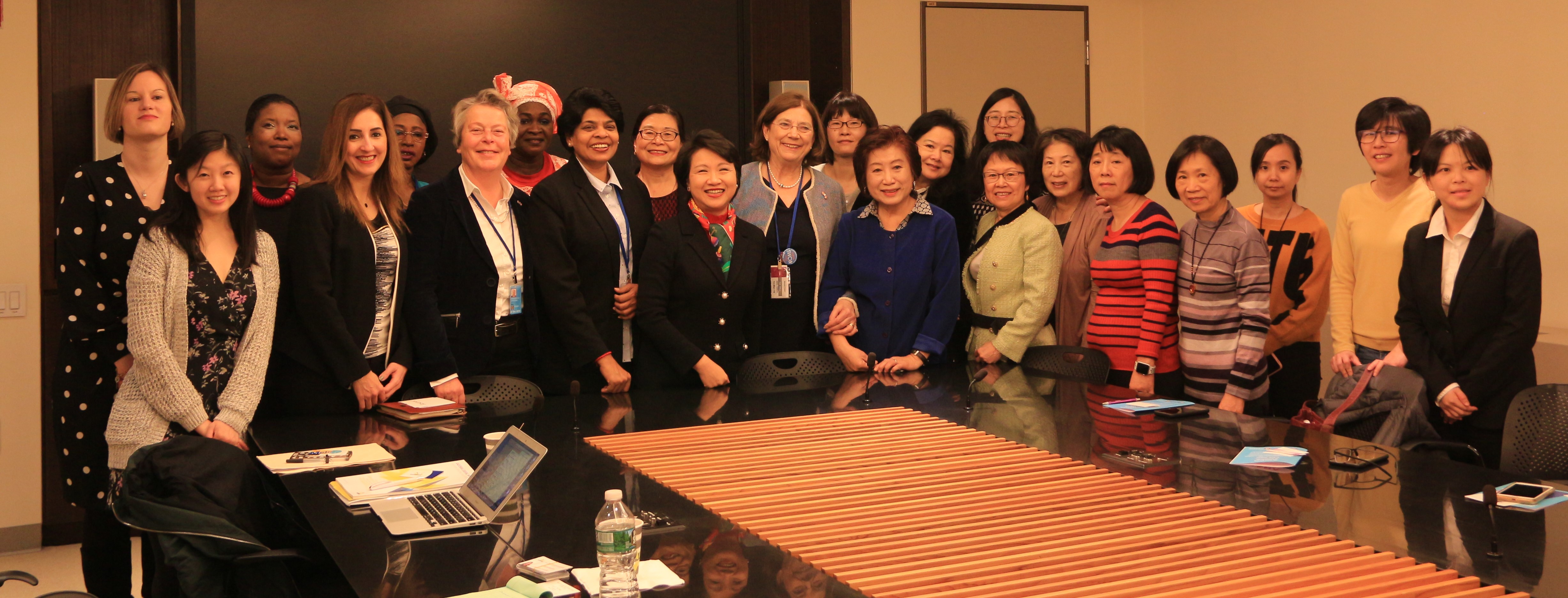
On the last day in our first week we arranged a very animated INLW meeting of INLW members with a group of ladies from Taiwan, Senegal and Mali. Many became a member of INLW.
We had our INLW side event with LI and Gender Women democracy on the Friday afternoon (seperate report).
The members of the INLW Board had a fruitfull meeting together with our new Board members and are looking forward to the next CSW march 2020.
At the closure of CSW63rd the agreed conclusions were accepted, a good result. You can download the report here.
Lysbeth van Valkenburg-Lely
Margaret de Vos van Steenwijk-Groeneveld
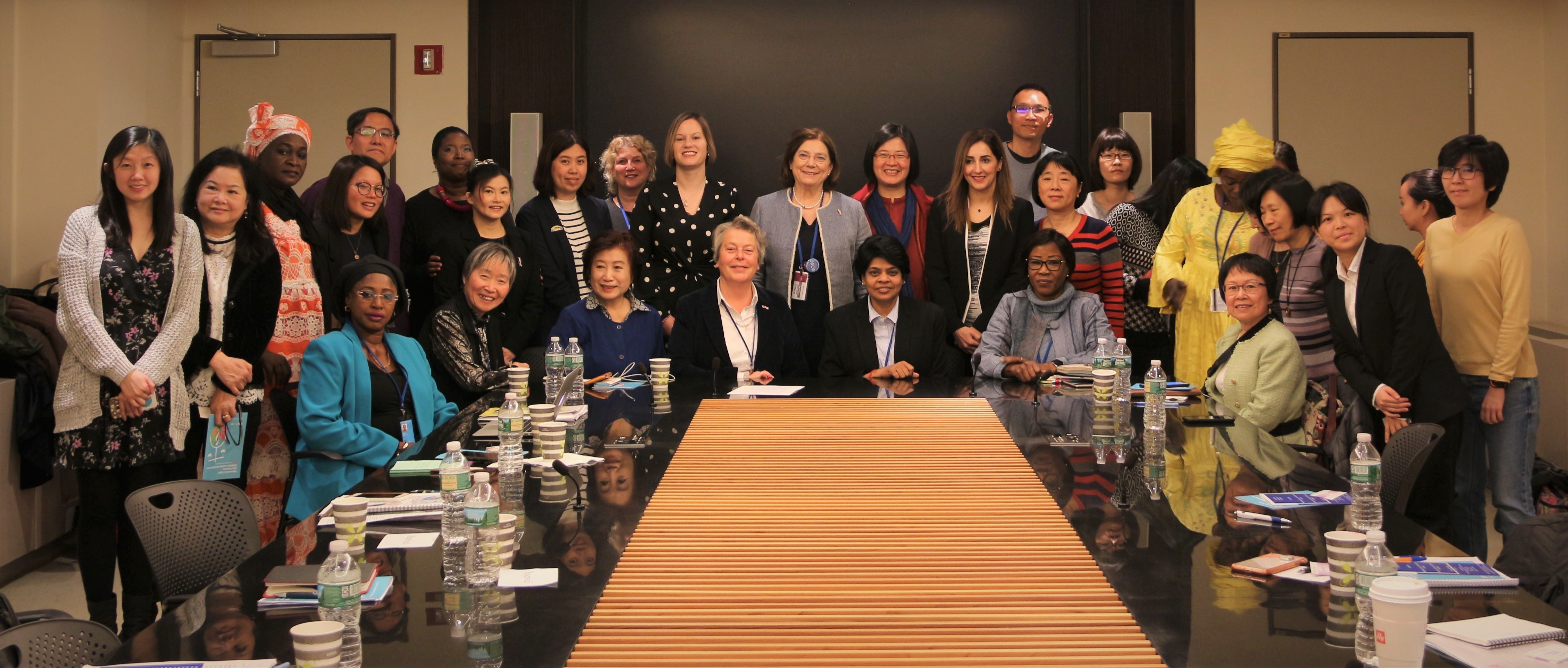
Download report
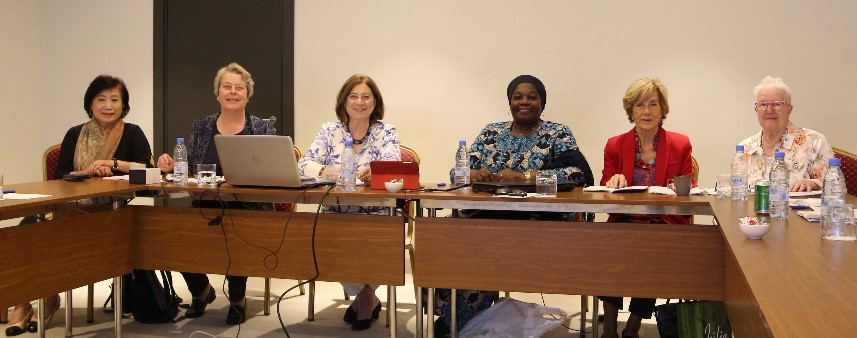
During the General Meeting in Dakar, Senegal, the election and appointment took place of several (new) members of the INLW Board. The Board has also decided to install a Consultative Committee, acoording to art. 4.5 of the INLW Constitution.
Several members were present during the GM. There was a warm welcome for the New President, Jayanthi Devi Balaguru who was unable to be present herself because of her work obligations. She hopes to meet members in New York during the CSW in March.
Words of thanks were especially spoken to Margaret de Vos van Steenwijk, president of INLW during two terms. She gave a lot of energy, time, wisdom, enthousiasm and friendship to all members during those years. We all thank her and hope for her support in her new position as immediate Past President.
Here you find the new formation of the Board and also the group of members who were appointed as members of the Consultative Committee.
INLW MANAGEMENT BOARD
APPOINTED IN THE GENERAL MEETING IN DAKAR 2018
| President: | Jayanthi Devi Balaguru |
| Immediate Past President: | Margaret de Vos van Steenwijk |
| Deputy President: | Khadija El Morabit |
| Secretary General: | Mireia Huerte Sala |
| Treasurer: | Lysbeth van Valkenburg |
| Vice-president Europe: | Sal Brinton |
| Vice President Asia: | Maysing Yang |
| Vice President Mena: | Loubna Amhair |
| Vice President Africa: | nominated Awa Gueye Kebe |
| Vice President Latin America: | Patricia Olamendi |
| Member general affairs: | Leticia Gutíerrez |
| Member general affairs: | Ruth Richardson |
CONSULTATIVE COMMITTEE of INLW
Installed in Dakar, Senegal during the General Meeting of
The Interantional Network of Liberal Women
according to art. 4.5 of the INLW Constitution
Joaquima Alemany Roca, Spain
Marianne Kallen, The Netherlands
Denise Robinson, South Africa
Silvia Flury, Spain
Yaya Fanta Kaba Fofana, Ivory Coast
This year the ALDE party met at Madrid for its congress. The European Liberal Democratic family consists of more than 60-member parties across the continent and more than 50 members of the European Parliament who are part of the ALDE Group. Hans van Baalen MEP (Member of the VVD) has been president of the ALDE Party since 2015.
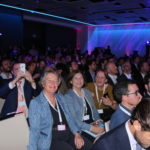 The congress was set in the setting of the 2019 elections. It will be an important year for all Liberals with the coming elections.
The congress was set in the setting of the 2019 elections. It will be an important year for all Liberals with the coming elections.
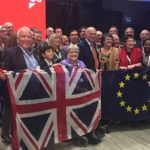 Another important theme is the Brexit. This will overshadow the planned debate about budget, migrations and what is the future of Europe. Europe still favors a soft Brexit and any realistic idea from the UK is welcome. The Liberal Democrats are very clear, that they want to stay in Europe, but they are not strong enough to be able to change Brexit to Stay.
Another important theme is the Brexit. This will overshadow the planned debate about budget, migrations and what is the future of Europe. Europe still favors a soft Brexit and any realistic idea from the UK is welcome. The Liberal Democrats are very clear, that they want to stay in Europe, but they are not strong enough to be able to change Brexit to Stay.
It is important for liberals to work together for the future of a stronger and united Europe. We must keep reminding people of what we have achieved together. But we must also listen to what the people of Europe want. Now we can see two visions of Europe: the vision of populists and nationalists and the vision of those who want to relaunch the European dream. It is important to build bridges even if we don’t agree on everything.
[read]
The discussion should be focused on the future of trade, investments and innovation. Most liberals are optimistic and hopeful that the liberals can win.
Juli Minoves said: “We need to fight beyond Europe. The Liberal struggle will be strong if it goes beyond any border”. We must show people the proven costs of anti -Eu policy.
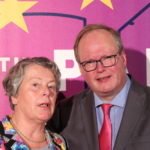 “Let 2019 be remembered as the year when the EU regained its confidence and began moving forward again”, quote from Micheál Martin (Ireland) as also the following, “Brexit is one of the most destructive decisions taken by a free nation in decades. I want to thank all ALDE member parties for all their support in helping Ireland to diminish the impact of Brexit”.
“Let 2019 be remembered as the year when the EU regained its confidence and began moving forward again”, quote from Micheál Martin (Ireland) as also the following, “Brexit is one of the most destructive decisions taken by a free nation in decades. I want to thank all ALDE member parties for all their support in helping Ireland to diminish the impact of Brexit”.
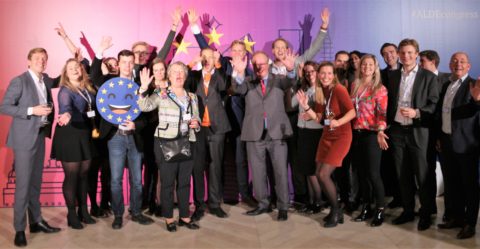 A considerable amount of time was spent on the presentation of the “ALDE Manifesto: The Liberal vision for the future of Europe”. There was a good and healthy debate on the many suggested amendments to the Manifesto. After voting on the sometimes-reedited amendments the ALDE Manifesto was adopted. The parties can use this important document for their campaigns for the European elections in May 2019.
A considerable amount of time was spent on the presentation of the “ALDE Manifesto: The Liberal vision for the future of Europe”. There was a good and healthy debate on the many suggested amendments to the Manifesto. After voting on the sometimes-reedited amendments the ALDE Manifesto was adopted. The parties can use this important document for their campaigns for the European elections in May 2019.
Another issue at the congress was sustainable growth. One of the conclusions was that cities around the world need to take real action to achieve sustainable growth. Some statements were given by participants: We should eat less but better meat, as large-scale industrial production hurts the environment, but small scale can enhance biodiversity.
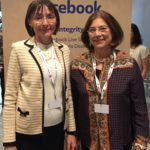 Let’s save our blue oceans! Every second breath we take comes from the ocean, we need it to survive, strong message from MEP Meissner, The Liberals must lead the way to a more sustainable, innovative and safe world, MEP Federley (Sweden).
Let’s save our blue oceans! Every second breath we take comes from the ocean, we need it to survive, strong message from MEP Meissner, The Liberals must lead the way to a more sustainable, innovative and safe world, MEP Federley (Sweden).
Apart from many interesting sessions we were taken to the Museo del Prado for a lovely Congress dinner reception. Several new members were elected for the Alde Board.
We also made some new contacts and hope to see many ALDE members again. We wish all the MEP’s a successful campaign in 2019!
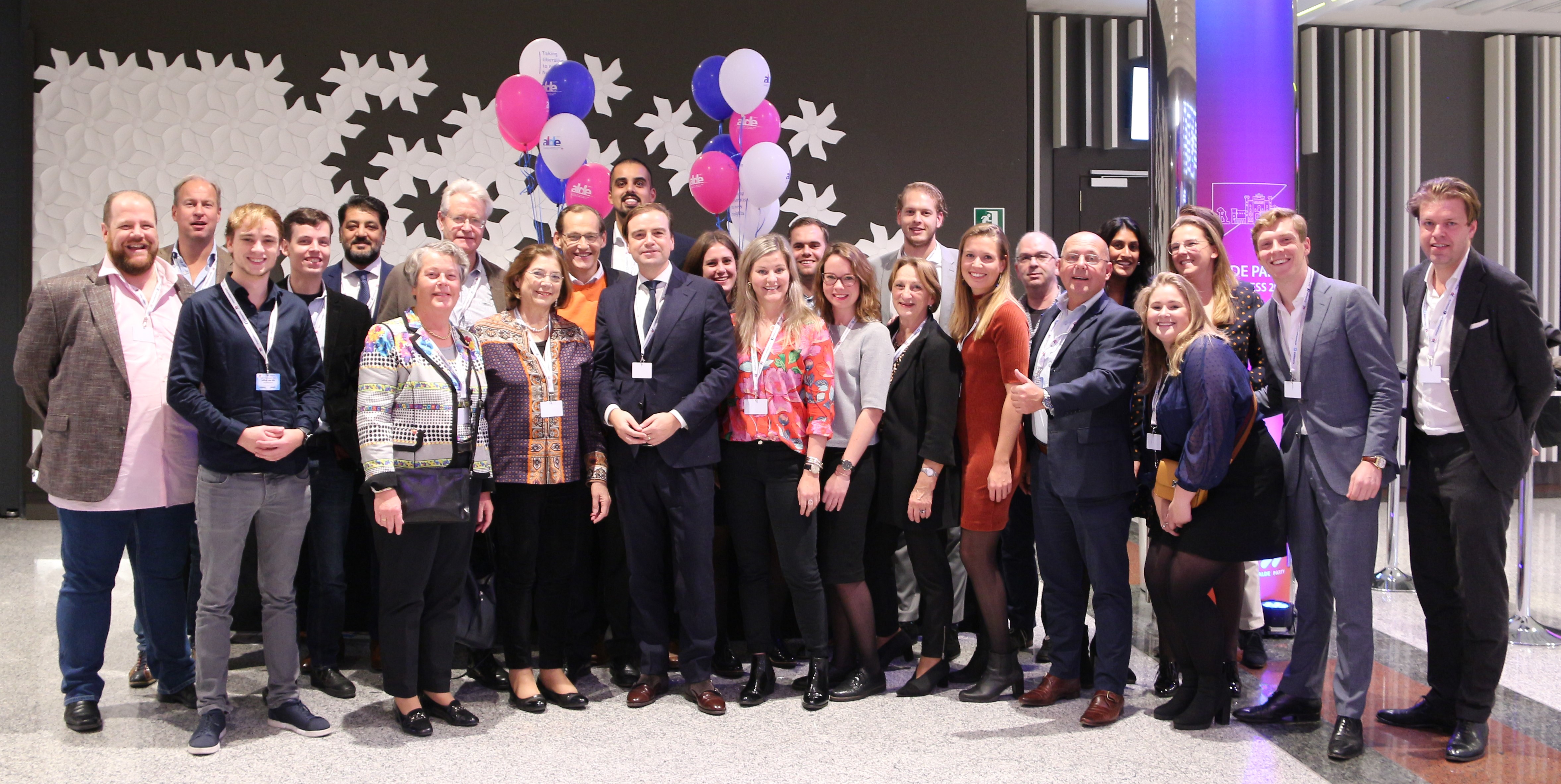
[/read]
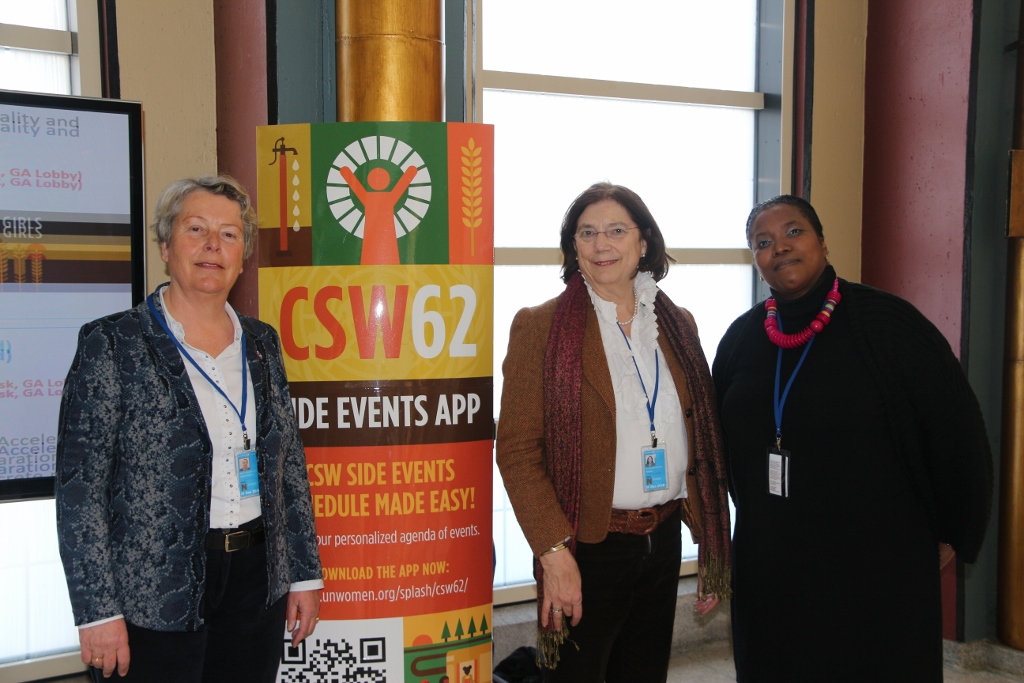 This year the UN CSW was set with the title “Challenges and opportunities in achieving gender equality and the empowerment of rural women and girls”.
This year the UN CSW was set with the title “Challenges and opportunities in achieving gender equality and the empowerment of rural women and girls”.
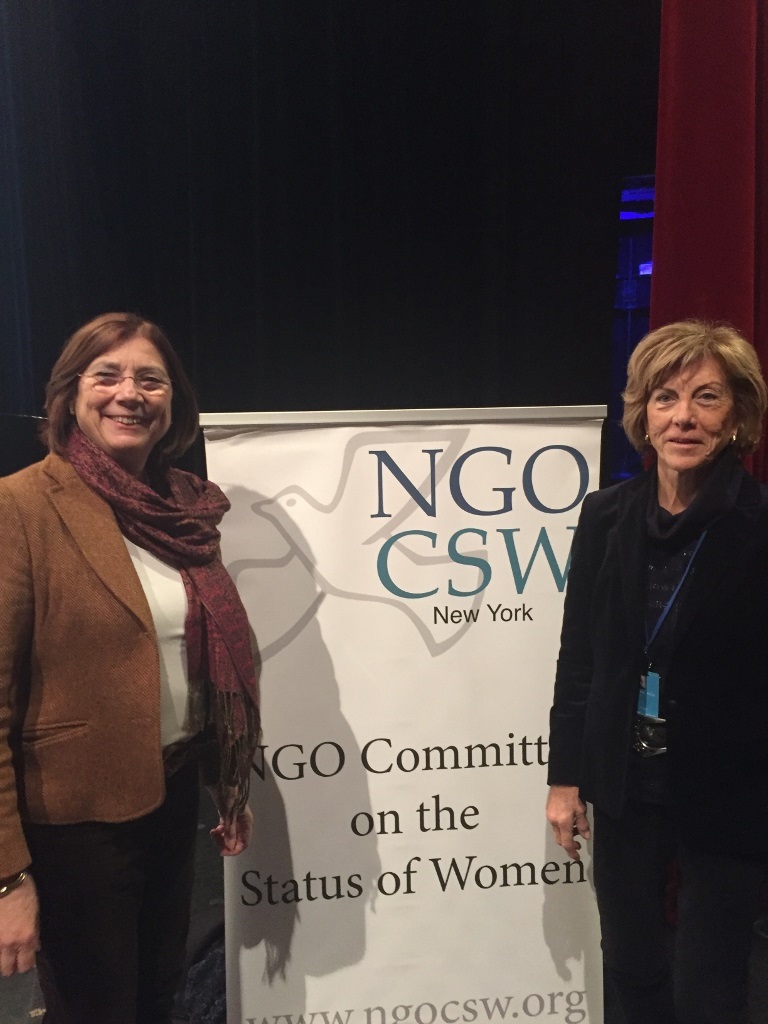 Several members of our INLW board were present. Margaret de Vos, Lysbeth van Valkenburg and Ruth Richardson were present during the opening ceremony, as well as Joaquima Alemany.
Several members of our INLW board were present. Margaret de Vos, Lysbeth van Valkenburg and Ruth Richardson were present during the opening ceremony, as well as Joaquima Alemany.
The new Chair, Ms Geraldine Byrne Nason (from Ireland) opened the 62nd CSW. She stated: “I am proud to be here in St Patrick’s week. We must promote the instruments to help girls in rural areas. I know from my own home country, Ireland, that especially women and girls can help build peace and help development in the rural parts. Girls and women must come to the decision-making table, we must leave no one behind and work on this for 2020!”. A quote from Irish Murdoch: “I think being a woman is being Irish, you are nice but second place”.
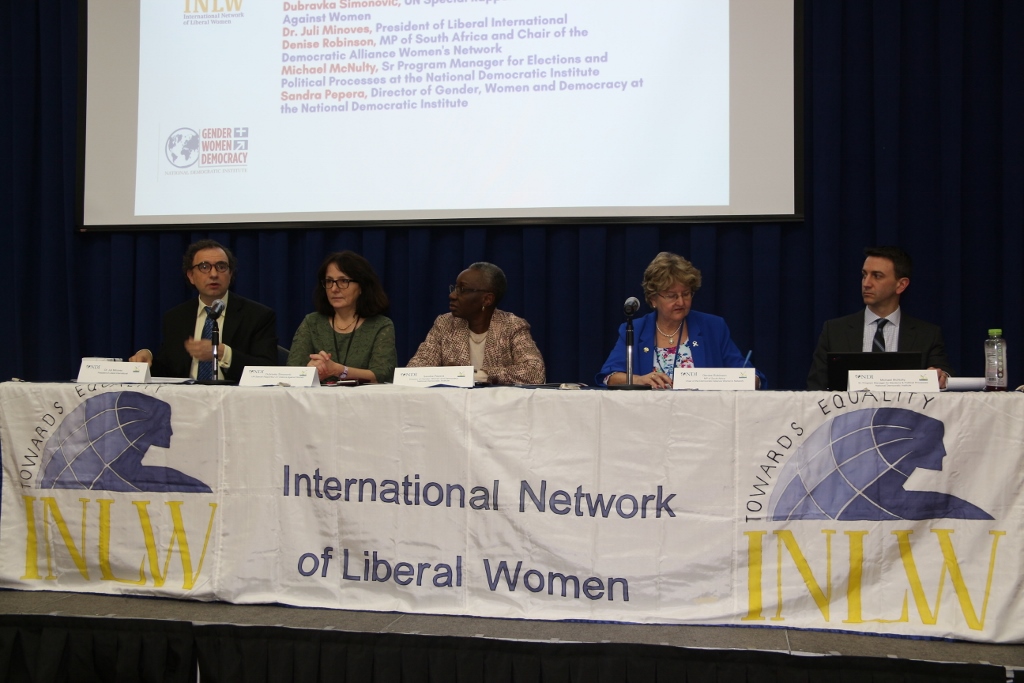 Liberal International, the National Democratic Institute and INLW organized an event about: Pushing Back, strategies for combatting violence against women in Politics.
Liberal International, the National Democratic Institute and INLW organized an event about: Pushing Back, strategies for combatting violence against women in Politics.
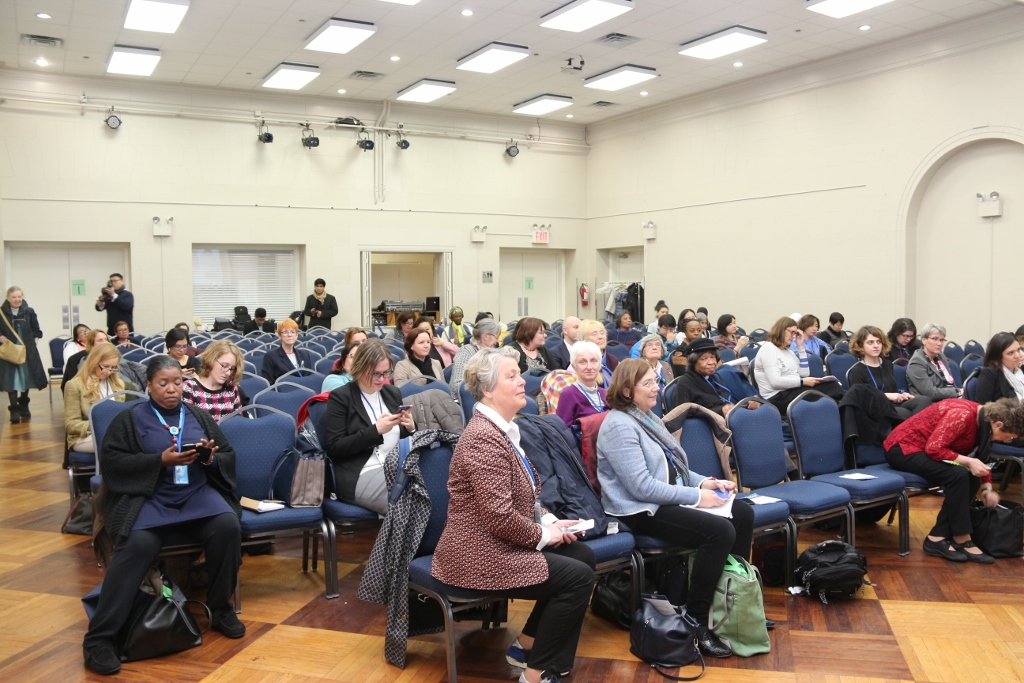 Teaming up with Madeleine Albright’s National Democratic Institute (NDI), LI and INLW asked NDI, for the occasion of two-year anniversary of the #NotTheCost campaign to end violence against women in politics, to organize a side-event on the fringes of the 62nd Session of the United Nations Commission on the Status of Women (UNCSW) in New York, raising the profile of this global cause.
Teaming up with Madeleine Albright’s National Democratic Institute (NDI), LI and INLW asked NDI, for the occasion of two-year anniversary of the #NotTheCost campaign to end violence against women in politics, to organize a side-event on the fringes of the 62nd Session of the United Nations Commission on the Status of Women (UNCSW) in New York, raising the profile of this global cause.
Under the theme Pushing Back: Strategies for Ending Violence against Women in Politics (VAW-P) and in partnership with the International Network of Liberal Women (INLW), the event aimed to showcase best practice solutions by exploring lessons learned from around the world and providing participants with tested tools to push back on violence against women in politics both preemptively and proactively.
[read more=”Read more” less=”Read less”]
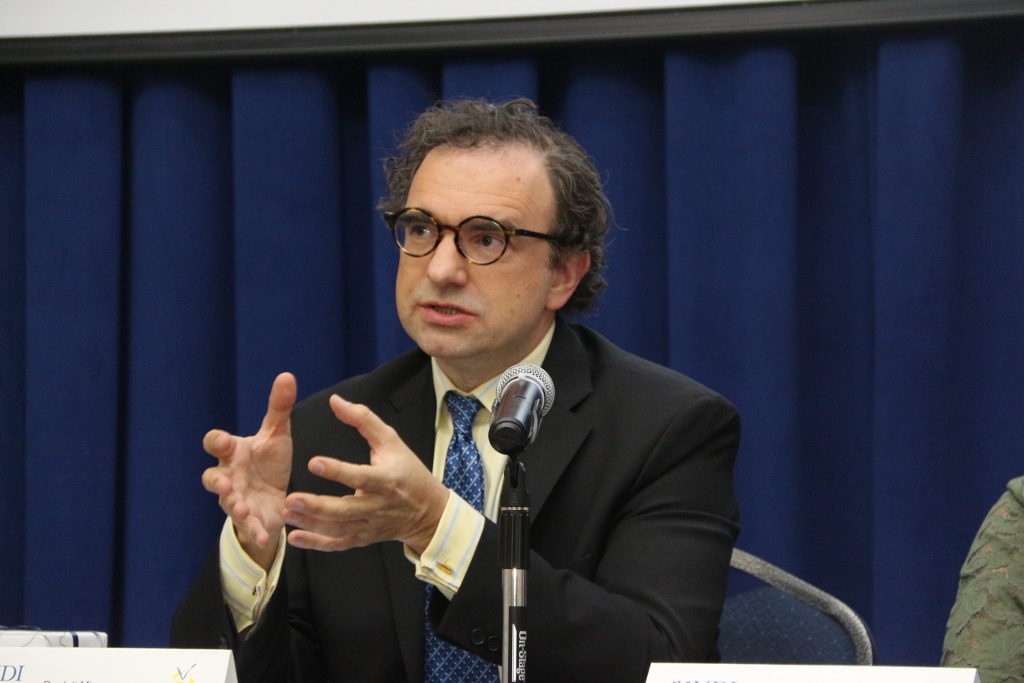 Addressing more than 100 delegates, LI President Dr Juli Minoves insisted that the abuse women in politics suffer is not only physical or sexual but psychological and liberals in government and opposition around the world are leading the efforts to offer solutions and strategies to end gender-based violence, especially violence against women in politics. “Something that happens with Violence Against Women-Politicians is that there is very little self-acknowledgement that this is happening in society and that it goes much beyond physical violence, the internet abuse is getting more and more intense” he said.
Addressing more than 100 delegates, LI President Dr Juli Minoves insisted that the abuse women in politics suffer is not only physical or sexual but psychological and liberals in government and opposition around the world are leading the efforts to offer solutions and strategies to end gender-based violence, especially violence against women in politics. “Something that happens with Violence Against Women-Politicians is that there is very little self-acknowledgement that this is happening in society and that it goes much beyond physical violence, the internet abuse is getting more and more intense” he said.
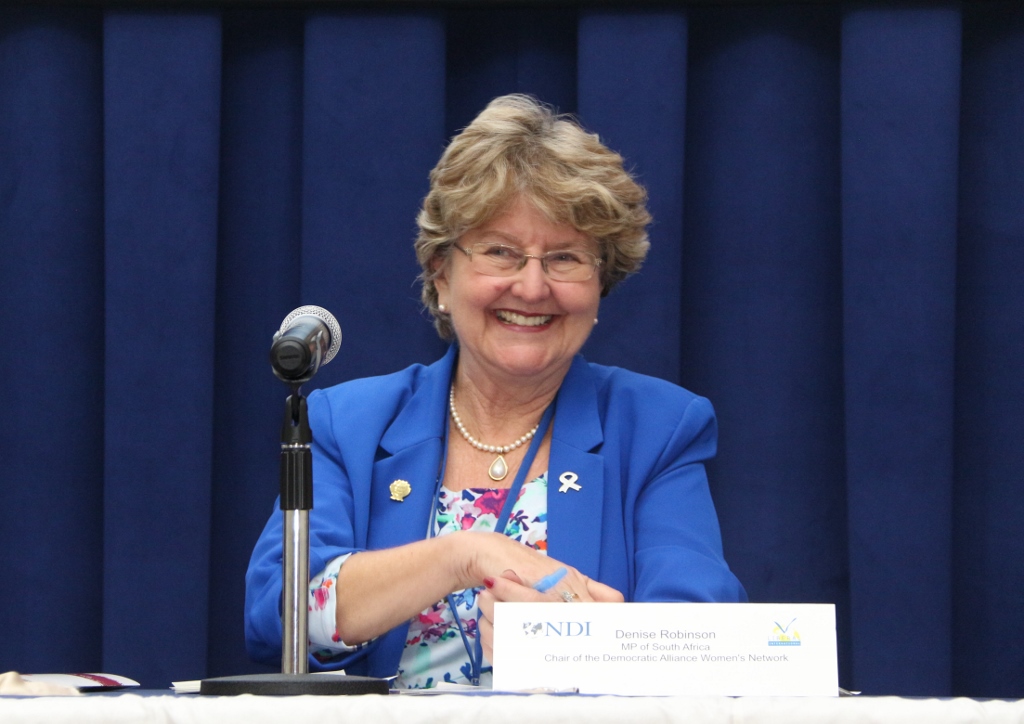 Speaking on behalf of INLW, Democratic Alliance Member of Parliament Denise Robinson, emphasized that “stronger legislation needs to go hand in hand with stronger implementation and monitoring when it comes to ending violence against women including violence against politically active women.” Even within liberal parties this attitude occurs and must be addressed.
Speaking on behalf of INLW, Democratic Alliance Member of Parliament Denise Robinson, emphasized that “stronger legislation needs to go hand in hand with stronger implementation and monitoring when it comes to ending violence against women including violence against politically active women.” Even within liberal parties this attitude occurs and must be addressed.
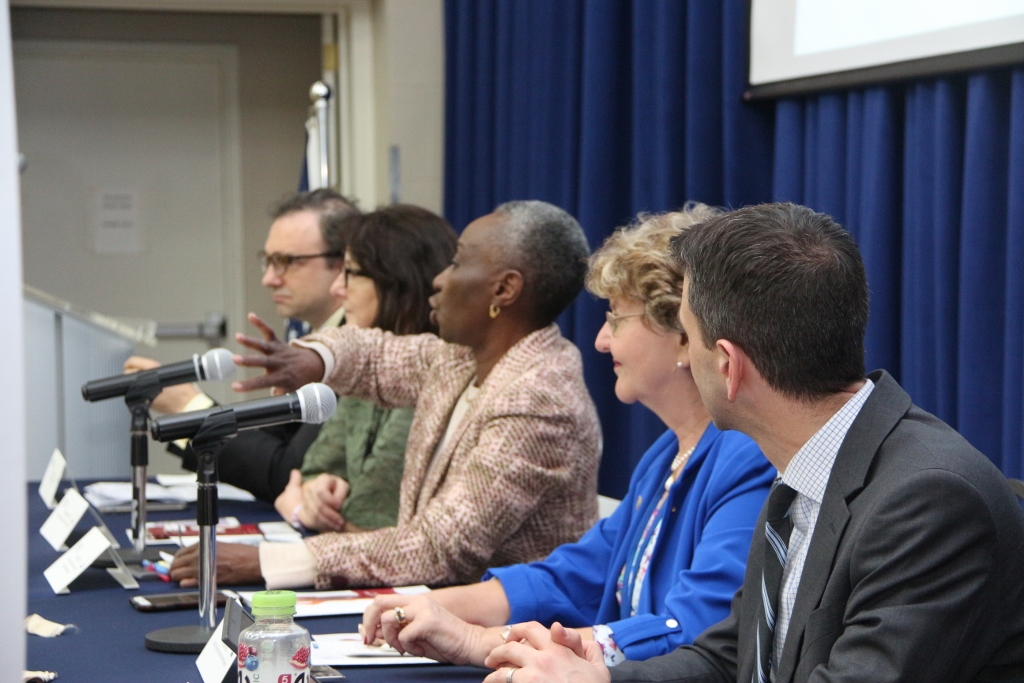 The panel was moderated by NDI’s director for Gender, Women and Democracy, Sandra Pepera and featured United Nations Special Rapporteur on Violence against Women Ms. Dubravka Šimonović, and NDI Senior Program Manager (Elections and Political Processes), Michael McNulty.
The panel was moderated by NDI’s director for Gender, Women and Democracy, Sandra Pepera and featured United Nations Special Rapporteur on Violence against Women Ms. Dubravka Šimonović, and NDI Senior Program Manager (Elections and Political Processes), Michael McNulty.
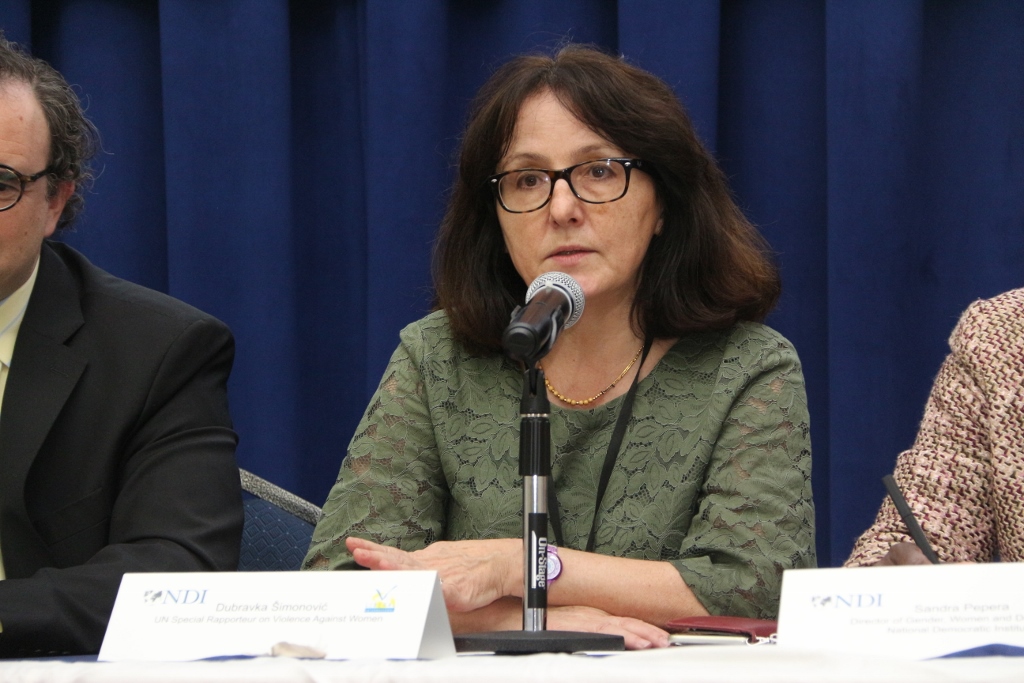 Liberal International has been at the forefront of the issue. Most recently, LI HRC Member Marina Schuster (FDP) participated in a closed expert hearing meeting with H.E. Dubravka Simonovic where she highlighted efforts of liberals in government and opposition to support women in politics and end all forms of discrimination and abuse against politically active women.
Liberal International has been at the forefront of the issue. Most recently, LI HRC Member Marina Schuster (FDP) participated in a closed expert hearing meeting with H.E. Dubravka Simonovic where she highlighted efforts of liberals in government and opposition to support women in politics and end all forms of discrimination and abuse against politically active women.
Special rapporteur Dubravka Simonovic is compiling an important report on the situation in the world concerning violence against women involved in politics. INLW is encouraging its members to file their own experiences and send this via NDI to the Special Rapporteur. This fall the report will be presented at the UN.
For information on how to file your experiences for the Rapporteur, you can contact inlw@inlw.org
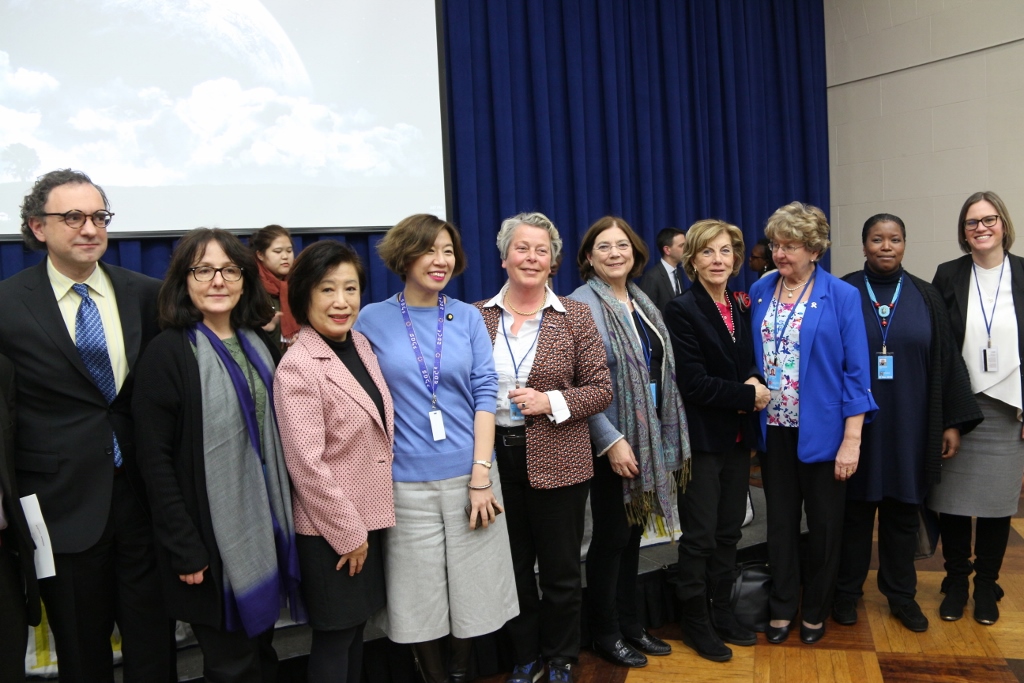
The conclusion of all the participants on the panel was, that there is still a lot of important work all around the world needed, to change the attitude towards women in politics.
[/read]
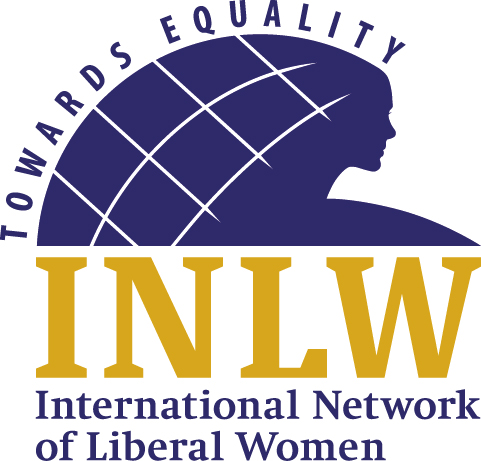
 Visit our Facebook page
Visit our Facebook page